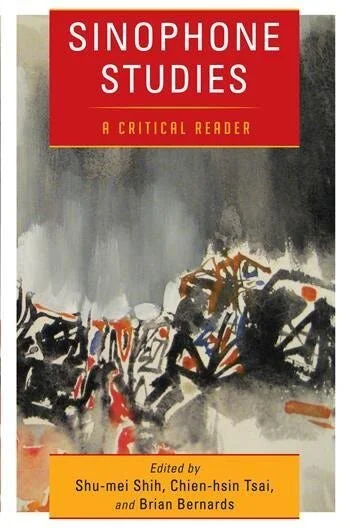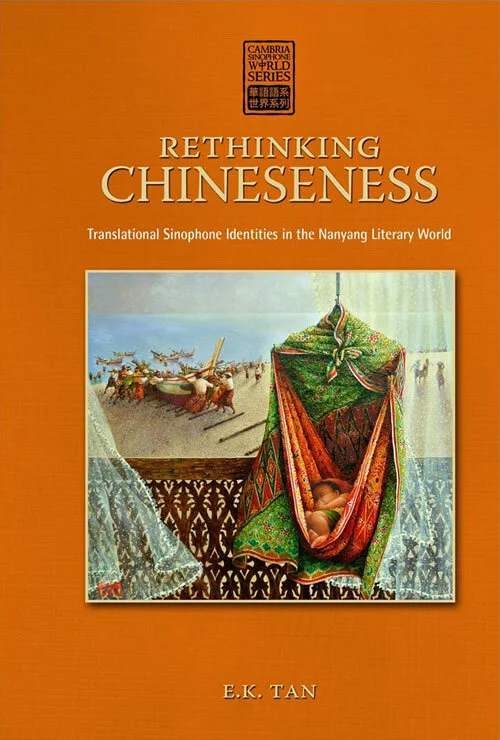If you know of any books that should be included, please let us know. We are working to build a comprehensive list. :)
Sinophone studies as a framework
-

Edited by Andrea Bachner, Howard Chiang, and Yu-Lin Lee
Sinoglossia
The concept of sinoglossia combines a heteroglossic and heterotopian approach to the critical study of mediated discourses of China and “Chineseness.” -

Edited by Howard Chiang and Shu-mei Shih
Sinophone Studies Across Disciplines: A Reader
This reader presents the latest and most cutting-edge work in Sinophone studies, bringing together both senior and emerging scholars to highlight the interdisciplinary reach and significance of this vital field.
-
Edited by Shu-mei Shih, Chien-hsin Tsai, and Brian Bernards
Sinophone Studies: A Critical Reader
This definitive anthology casts Sinophone studies as the study of Sinitic-language cultures born of colonial and postcolonial influences.
-
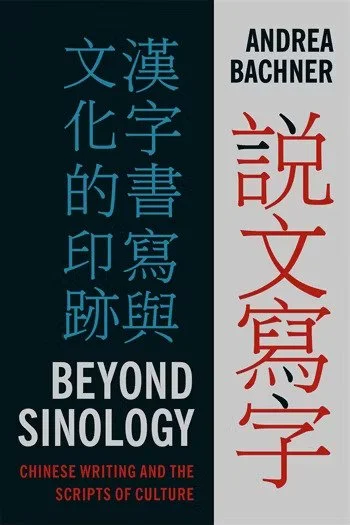
Andrea Bachner
Beyond Sinology: Chinese Writing and the Scripts of Culture
The book reflects on the Chinese script to pinpoint the multiple connections between languages, scripts, and medial expressions and cultural and national identities.
-
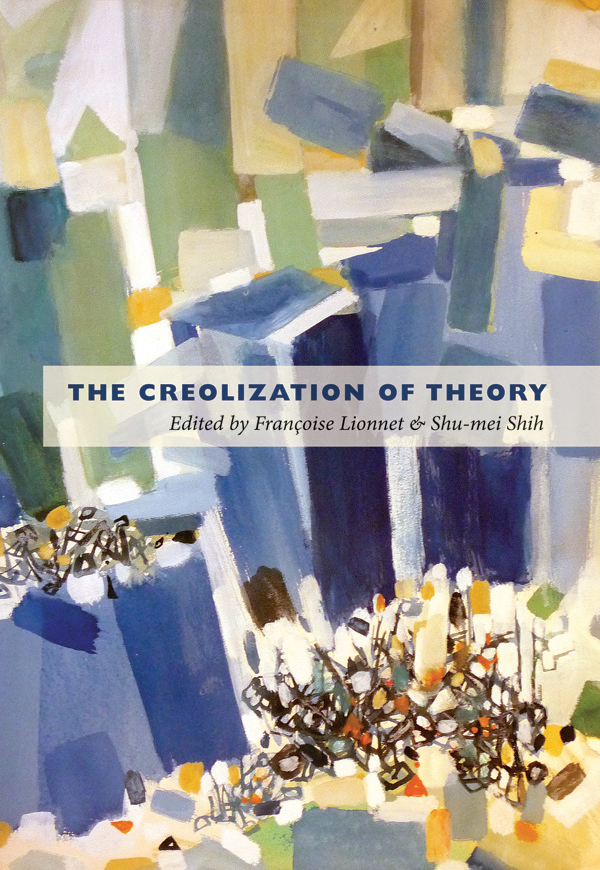
Ed. by Françoise Lionnet, Shu-mei Shih
The Creolization of Theory
Françoise Lionnet and Shu-mei Shih argue that looking back—investigating the historical, intellectual, and political entanglements of contemporary academic disciplines—offers a way for scholars in the humanities to move critical debates forward.
Sinophone studies and world literature
-

Ed. by Xiaolu Ma and Carlos Rojas
This book not only makes an important contribution to the field of Lu Xun studies, but also proposes a reexamination of the category of world literature.
-

Edited by Kuei-fen Chiu and Yingjin Zhang
The Making of Chinese-Sinophone Literatures as World Literature
This edited volume advances research on world literature by bringing in new developments in Chinese/Sinophone literatures and adds a much-needed new global perspective on Chinese literary studies beyond the traditional national literature paradigm and its recent critique by Sinophone studies.
-

Ed. by Pei-yin Lin and Wen-chi Li
Taiwanese Literature as World Literature
The volume focuses on three interrelated themes – the framing and worlding ploys of Taiwanese literature, Taiwanese writers' experience of transculturation, and politics behind translating Taiwanese literature.
-

Christopher Rea
China’s Literary Cosmopolitans: Qian Zhongshu, Yang Jiang, and the World of Letters
The book offers a comprehensive introduction to the literary oeuvres of Qian Zhongshu and Yang Jiang. It assesses their novels, essays, stories, poetry, plays, translations, and criticism, and discusses their reception as two of the most important Chinese scholar-writers of the twentieth century.
Sinophone studies and transnational studies
-
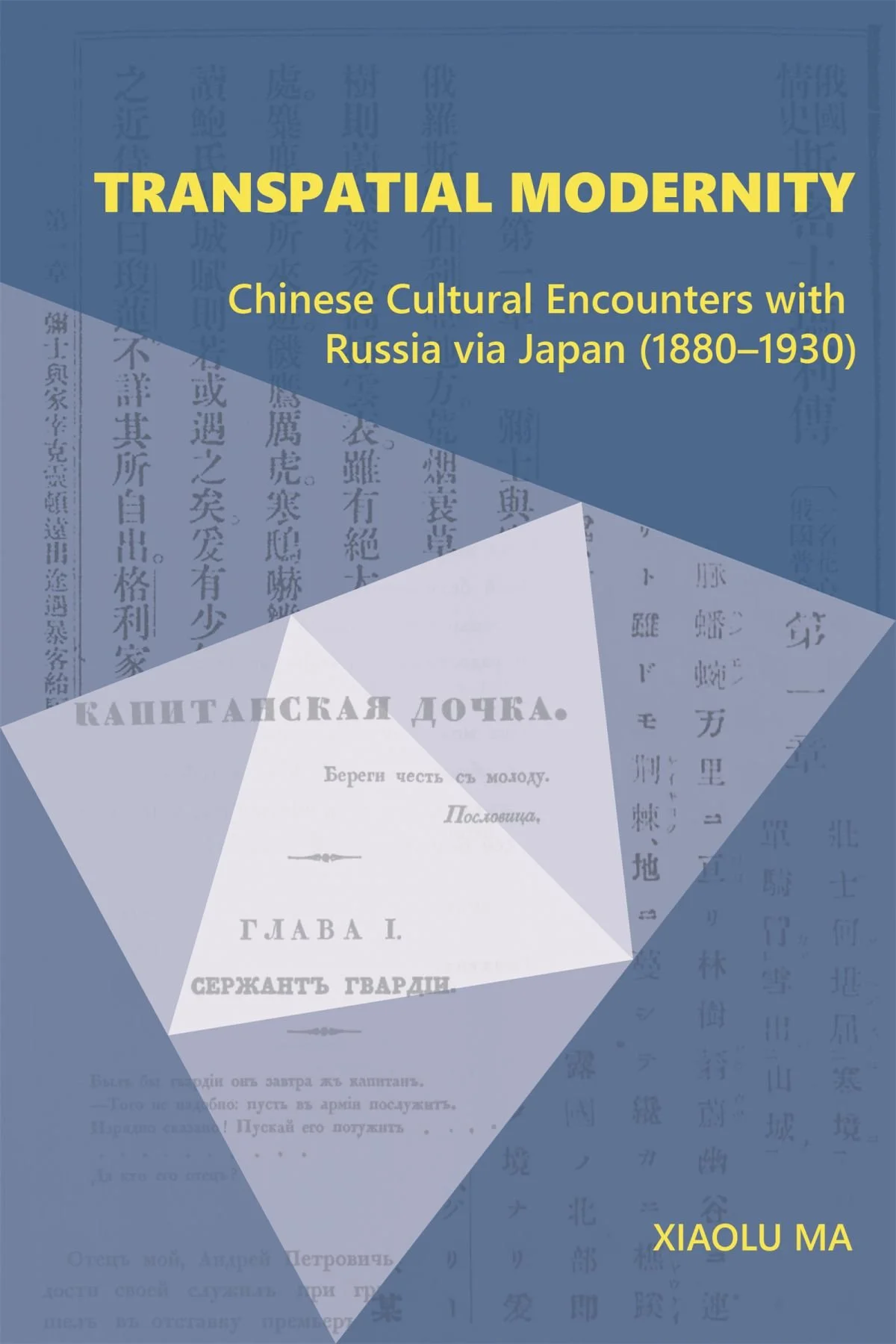
Xiaolu Ma
Transpatial Modernity: Chinese Cultural Encounters with Russia via Japan (1880–1930)
To trace the global journey of these literatures and ideas, Ma maps four case studies involving leading cultural figures including Leo Tolstoy, Futabatei Shimei, and Lu Xun. -
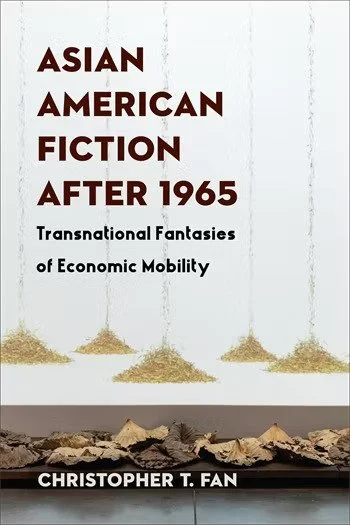
Christopher T. Fan
Asian American Fiction After 1965: Transnational Fantasies of Economic Mobility
In readings of writers including Ted Chiang, Chang-rae Lee, Ken Liu, Ling Ma, Ruth Ozeki, Kathy Wang, and Charles Yu, Fan examines how Asian American fiction maps the immigrant narrative of intergenerational conflict onto the “two cultures” conflict between the arts and sciences.
-

Alexa Huang
Chinese Shakespeares: Two Centuries of Cultural Exchange
The book theorizes competing visions of "China" and "Shakespeare" in the global cultural marketplace and challenges the logic of fidelity-based criticism and the myth of cultural exclusivity.
-
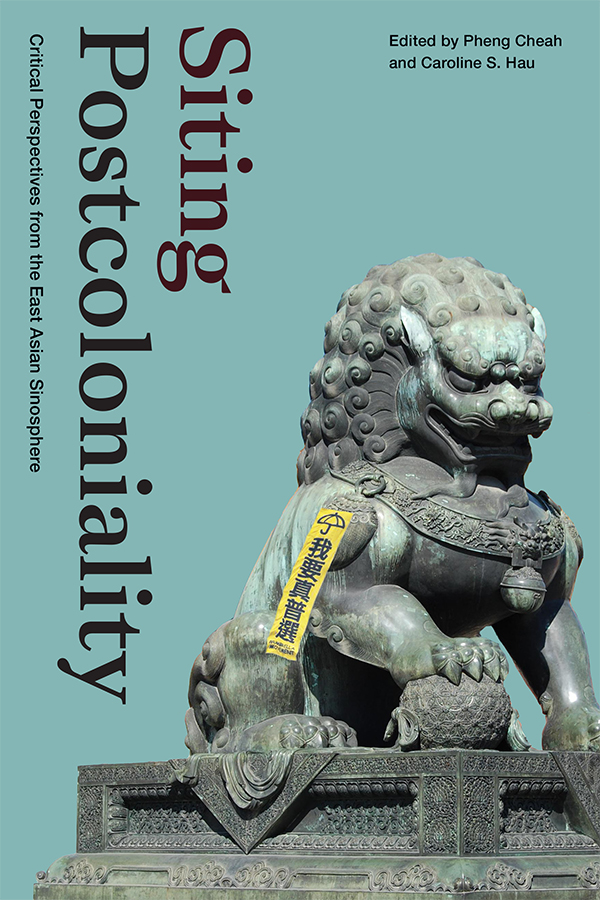
Ed. by Pheng Cheah, Caroline S. Hau
Siting Postcoloniality: Critical Perspectives from the East Asian Sinosphere
Pointing out that the history of imperialism in China and Southeast Asia is longer and more complex than Euro-American imperialism, the book complicate the traditional postcolonial binaries of center-periphery, colonizer-colonized, and developed-developing. -

Lily Wong
Transpacific Attachments: Sex Work, Media Networks, and Affective Histories of Chineseness
Wong focuses on the transpacific networks that reconfigure Chineseness, complicating a diasporic framework of cultural authenticity.
-

Mabel Lee and Liu Jianmei
Gao Xingjian and Transmedia Aesthetics
The book demonstrates the extensive reach of Gao Xingjian’s transcultural, transdisciplinary, and transmedia explorations.
-

Sheng-mei Ma
Sinophone-Anglophone Cultural Duet
By focusing on a “Sinophone-Anglophone” relationship rather than a “China-US” one, Sheng-mei Ma eschews realpolitik, focusing on the two languages and the cross-cultural spheres where, contrary to Kipling’s twain, East and West forever meet, like a repetition compulsion bordering on neurosis over the self and its cultural other.
-
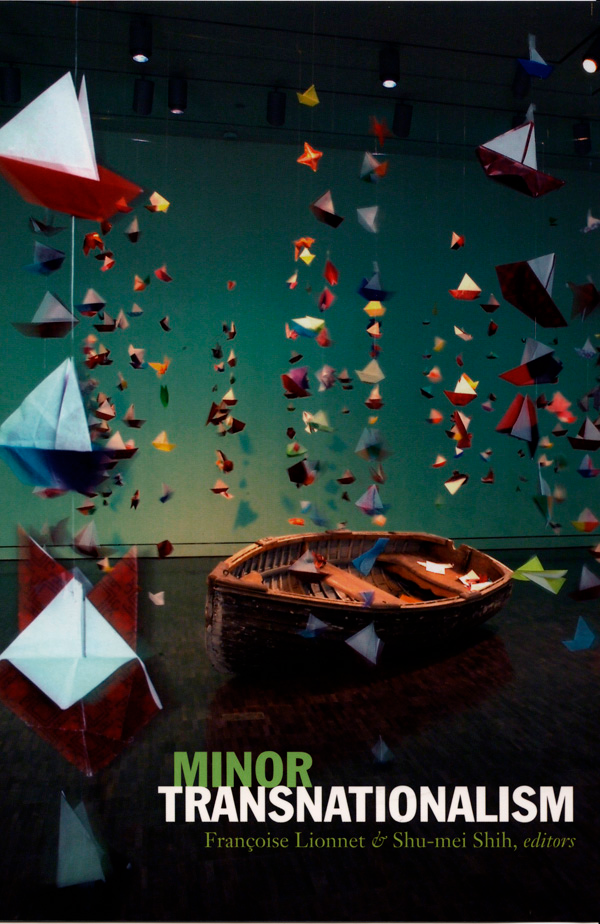
Ed. by Françoise Lionnet, Shu-mei Shih
Minor Transnationalism
Based in a broad range of fields—including literature, history, African studies, Asian American studies, Asian studies, French and francophone studies, and Latin American studies—the book complicates ideas of minority cultural formations and challenges the notion that transnationalism is necessarily a homogenizing force. -

Shu-mei Shih
Visuality and Identity: Sinophone Articulations across the Pacific
Shu-mei Shih inaugurates the field of Sinophone studies in this vanguard excursion into sophisticated cultural criticism situated at the intersections of Chinese studies, Asian American studies, diaspora studies, and transnational studies.
Sinophone studies and the South
-

Ed. Chia-rong Chia-rong Wu, Min-xu Zhan, Alison Groppe, Yenna Wu
The Southern Discourse in Sinophone LiteratureMoving Borders
This book analyzes various critical themes, including transnational migration, racial dynamics and stereotypes, gender politics, indigenous awareness, cultural hybridity, and global connections between the South and North. -
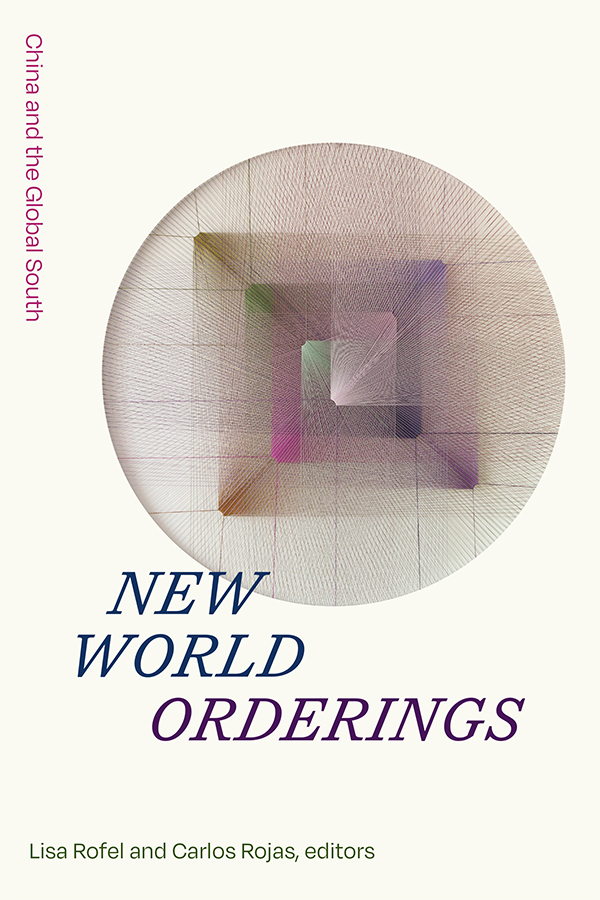
Ed. by Lisa Rofel, Carlos Rojas
New World Orderings: China and the Global South
The book demonstrates that China’s twenty-first-century rise occurs not only through economics and state politics but equally through the mutual entanglements of overlapping social, economic, and cultural worlds in Southeast Asia, Africa, and Latin America.
Sinophone studies and queer studies
-
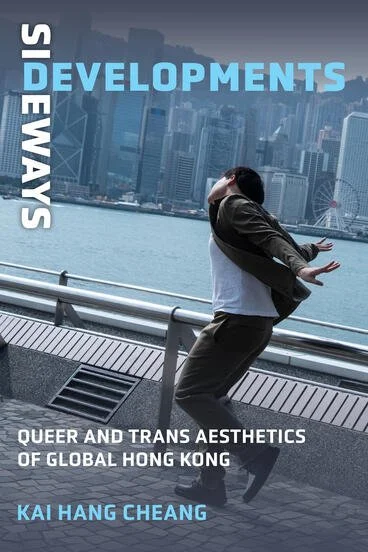
Kai Hang Cheang
Sideways Developments: Queer and Trans Aesthetics of Global Hong Kong
The bookexamines Hong Kong Anglophone and Cantophone literature and visual culture to trace the forms of queer and trans survival and flourishing in the Asian century. -
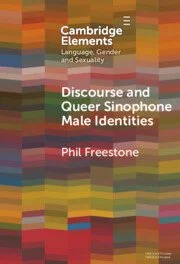
Phil Freestone
Discourse and Queer Sinophone Male Identities: A Western Immigrant Perspective.
The book sheds novel light on the ideological complexity that tends to underlie queer individuals' performance of 'who they are', in Sinophone contexts and elsewhere. -

Ed. Hongwei Bao and Yahia Zhengtang Ma
Queer Literature in the Sinosphere
The book is the most up-to-date English-language study of lesbian, gay, bisexual, transgender, and queer (LGBTQ+) themed literature and culture in the Chinese-speaking world.
-
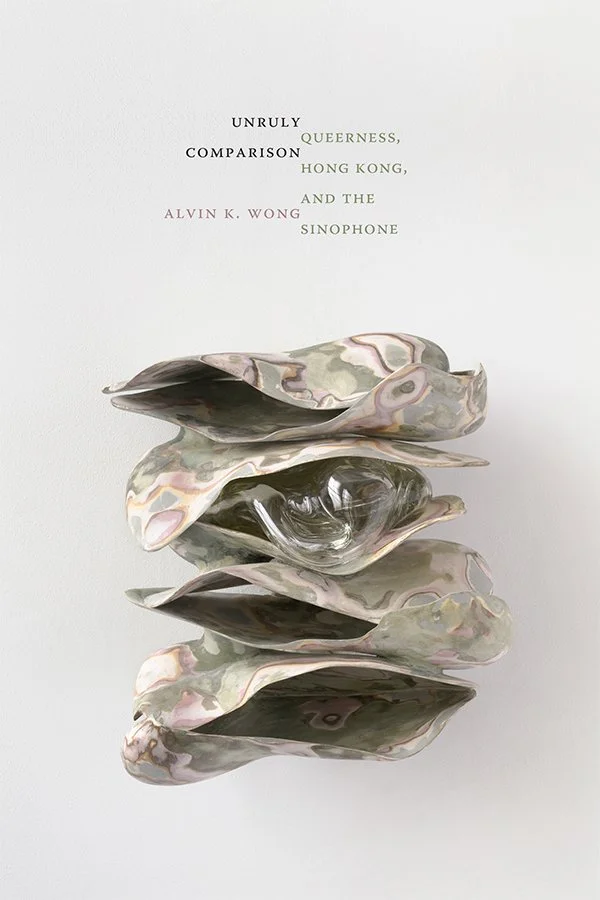
Alvin K. Wong
Unruly Comparison: Queerness, Hong Kong, and the Sinophone
The book examines queerness in Hong Kong through a transdisciplinary analysis of Sinophone literature, cinema, visual culture, and civil society.
-

Ed. Howard Chiang, Alvin K. Wong
Keywords in Queer Sinophone Studies
The book presents a definitive collection of original contributions, which are both theoretically and empirically grounded and cross-disciplinary in nature. Individual chapters offer an in-depth study of new empirical data and case studies, covering keywords such as transpacific, viscerality, fandom, postcoloniality, ethnicity and activism.
-

Howard Chiang
Transtopia in the Sinophone Pacific
Chiang brings Sinophone studies to bear on trans theory to deconstruct the ways in which sexual normativity and Chinese imperialism have been produced through one another.
-

Howard Chiang
After Eunuchs: Science, Medicine, and the Transformation of Sex in Modern China
Chiang traces the genealogy of sexual knowledge from the demise of eunuchism to the emergence of transsexuality, showing the centrality of new epistemic structures to the formation of Chinese modernity.
-

Edited By Howard Chiang, Ari Larissa Heinrich
The Sinophone framework emphasises the diversity of Chinese-speaking communities and cultures, and seeks to move beyond a binary model of China and the West. Indeed, this strikingly resembles attempts within the queer studies movement to challenge the dimorphisms of sex and gender.
-

Zoran Lee Pecic
New Queer Sinophone Cinema: Local Histories, Transnational Connections
Examining queerness in films produced in the PRC, Taiwan and Hong Kong, the book merges the Sinophone with the queer, theorising both concepts as local and global, homebound as well as diasporic. -
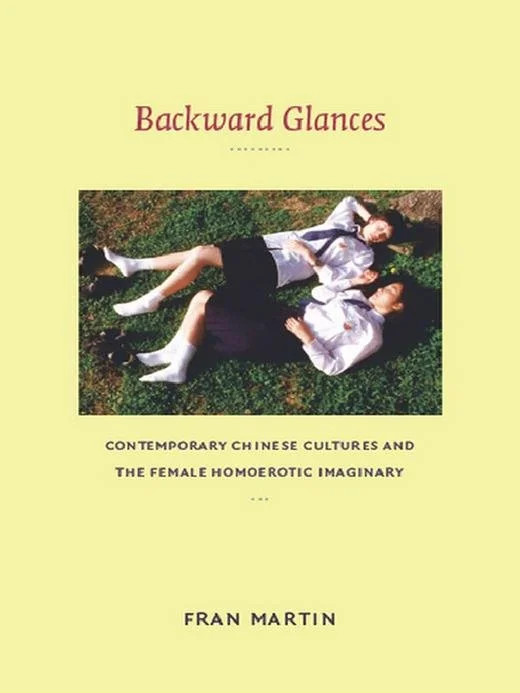
Fran Martin
Backward Glances: Contemporary Chinese Cultures and the Female Homoerotic Imaginary
By examining representations of erotic and romantic love between women in popular films, elite and pulp fiction, and television dramas, Fran Martin shows how youthful same-sex love is often framed as a universal, even ennobling, feminine experience. -
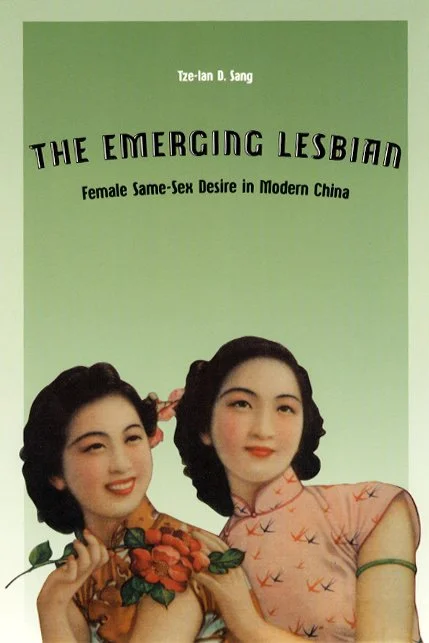
Tze-Lan D. Sang
The Emerging Lesbian: Female Same-Sex Desire in Modern China
Tze-lan D. Sang convincingly ties the debate over female same-sex love in China to the emergence of Chinese modernity. -
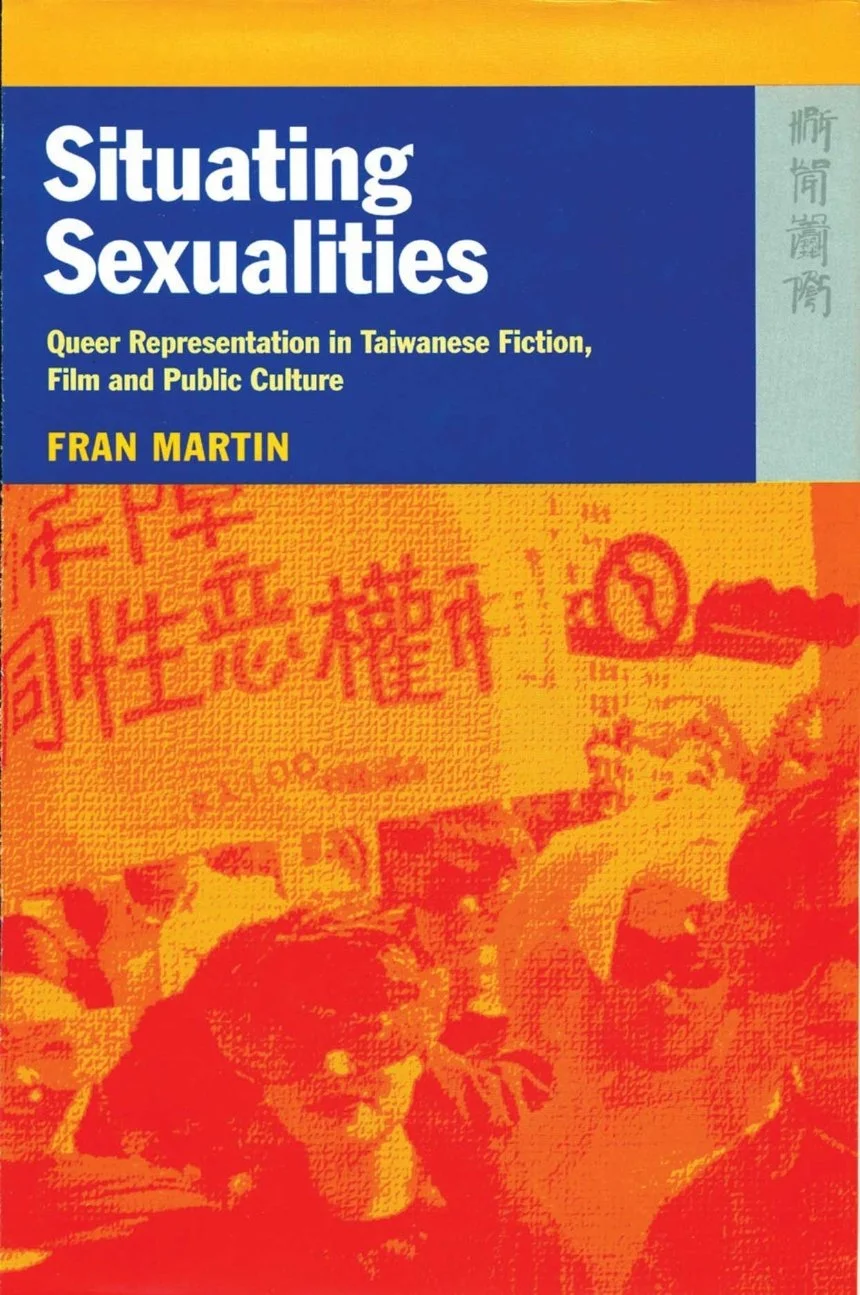
Fran Martin
Situating Sexualities: Queer Representation in Taiwanese Fiction, Film and Public Culture
This is the first book in English to analyse the stunning rise to prominence of cultures of dissident sexuality in Taiwan during the 1990s.
Sinophone studies and women’s studies
-
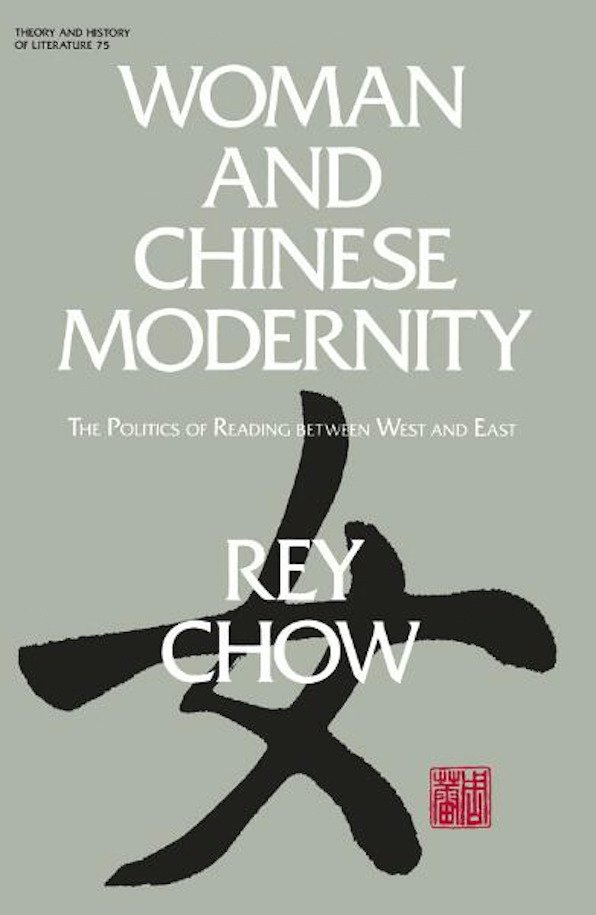
Rey Chow
Woman and Chinese Modernity: The Politics of Reading between West and East
The book examines the relationship of “woman” to issues of non-western culture. -
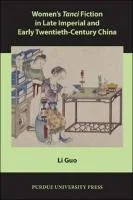
Li Guo
Women’s Tanci Fiction in Late Imperial and Early Twentieth-Century China
Li Guo presents the first book-length study in English of women’s tanci fiction, the distinctive Chinese form of narrative written in rhymed lines during the late imperial to early modern period -
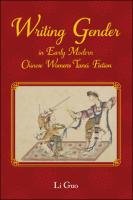
Li Guo
Writing Gender in Early Modern Chinese Women's Tanci Fiction
The book offers a timely study on early modern Chinese women’s representations of gender, nation, and political activism in their tanci works.
Sinophone studies and film studies
-
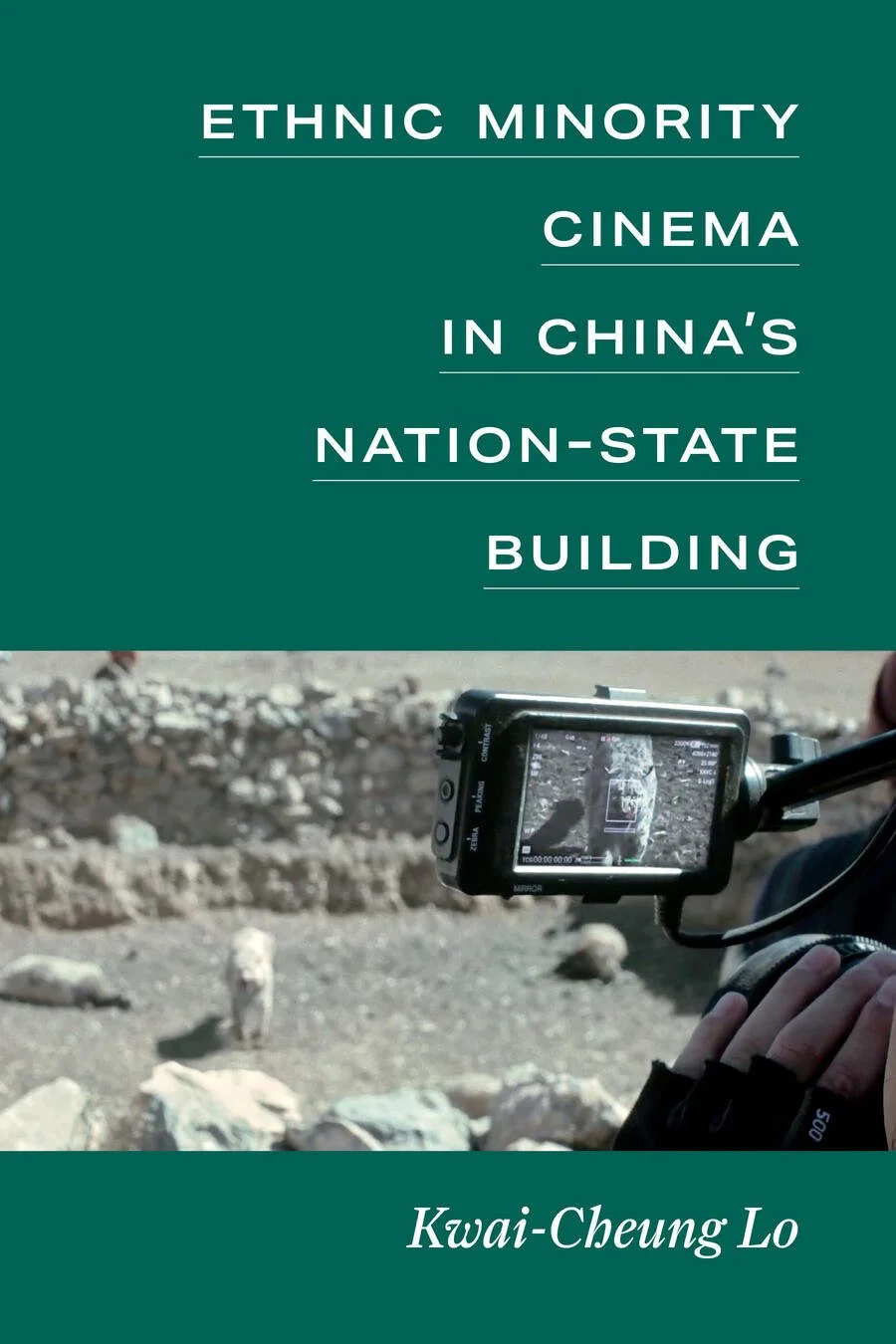
Kwai-Cheung Lo
Ethnic Minority Cinema in China’s Nation-State Building
Kwai-Cheung Lo argues that the glossy, but superficial, cinematic depictions of non-Han ethnic minorities manufactured and manipulated by state authorities have deeply penetrated the Chinese public’s conception of what an ideal multiethnic nation should be like as well as what it means to be Chinese under political unification.
-

Ed. Chris Berry, Wafa Ghermani, Corrado Neri, Ming-yeh Rawnsley
Taiwanese-Language Cinema: Rediscovered and Reconsidered
The book presents diverse approaches to the vibrant commercial film industry known as Taiwanese-language cinema (taiyupian).
-

Christopher Brown
Mapping Taiwanese Cinema, 2008-20: Environments, Poetics, Practice
Drawing on cinema, cartography, and cultural studies, Christopher Brown argues that by refocusing attention on how films are shaped through a process of construction, the tradition of film poetics enables us to think about Taiwanese cinema differently: as a form of mapping.
-

Nicholas de Villiers
Cruisy, Sleepy, Melancholy: Sexual Disorientation in the Films of Tsai Ming-liang
Nicholas de Villiers argues that Tsai expands and revises the notion of queerness by engaging with the sexuality of characters who are migrants, tourists, diasporic, or otherwise displaced.
-

Edited By Peng Hsiao-yen, Ella Raidel
The Politics of Memory in Sinophone Cinemas and Image CultureAltering Archives
Sinophone cinemas and image production function as archives, with the capability of reinterpreting the multiple dimensions of past and present. -

Christopher Lupke
The Sinophone Cinema of Hou Hsiao-hsien: Culture, Style, Voice, and Motion
This book offers important information for those particularly interested in the society and politics of postwar Taiwan and Sinophone culture in general. -

Editors: Audrey Yue, Olivia Khoo
Sinophone Cinemas
Sinophone Cinemas considers a range of multilingual, multidialect and multi-accented cinemas produced in Chinese-language locations outside mainland China. It showcases new screen cultures from Britain, Hong Kong, Taiwan, Singapore and Australia. -

Ed. Paul G. Pickowicz and Yingjin Zhang
Locating Taiwan Cinema in the Twenty-First Century
This book probes many crucial controversies: What are Taiwan’s meaningful cultural and historical connections to Japan? How do Taiwanese filmmakers and audiences feel about mainland China? How does Taiwan cinema deal with environmental issues, animal rights, human trafficking, sexuality, and the challenges facing ethnic minorities?
-

Beth Tsai
Taiwan New Cinema at Film Festivals
Through utilising in-depth case studies of films by Taiwan-based directors: Tsai Ming-liang, Zhao Deyin and Hou Hsiao-hsien, Tsai discusses how Taiwan New Cinema represents a struggling configuration of the ‘nation’, brought forth by Taiwan’s multilayered colonial and postcolonial histories. -

Stephen Teo
Chinese Martial Arts Cinema: The Wuxia Tradition
The book unveils rich layers of the wuxia tradition as it developed in the early Shanghai cinema in the late 1920s, and from the 1950s onwards, in the Hong Kong and Taiwan film industries.
-
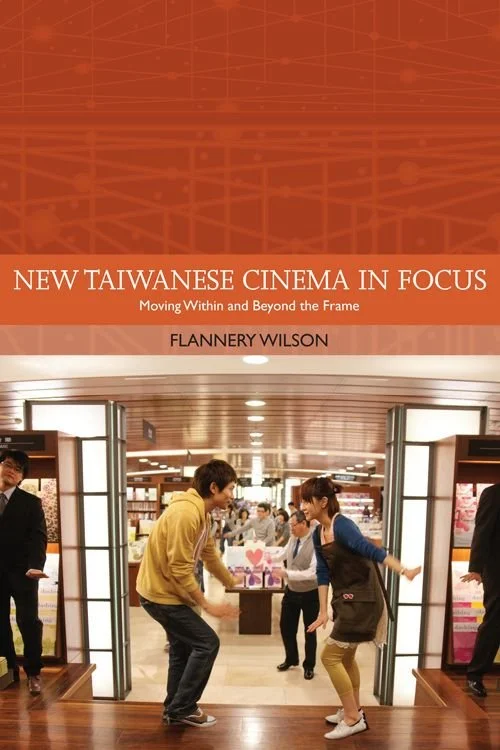
Flannery Wilson
New Taiwanese Cinema in Focus: Moving Within and Beyond the Frame
As the case studies in this book demonstrate, filmmakers such as Hou Hsiao-hsien, Edward Yang, Tsai Ming-liang, and Ang Lee each engage with international audience expectations.
-

Edited by Emilie Yueh-yu Yeh, Darrell William Davis, and Wenchi Lin
Thirty-two New Takes on Taiwan Cinema
Beyond the conventional framework of privileging “New and Post-New Cinema,” or prominence of auteurs or single films, this volume is a comprehensive, judicious take on Taiwan cinema that fills gaps in the literature, offers a renewed historiography, and introduces new creative force and voices of Taiwan’s moving image culture to produce a leading and accessible work on Taiwan film and culture.
-

Ed. Kenneth Chan, Andrew Stuckey
Sino-Enchantment: The Fantastic in Contemporary Chinese Cinemas
The book is the first work in English to approach this recent explosion of fantastic film in Chinese cinemas, where each re-envisioning of the form is determined by cultural, economic, political and technological factors to produce fresh inventions and creative reinventions of familiar narratives, characters and tropes.
-

Brian Hu
Worldly Desires: Cosmopolitanism and Cinema in Hong Kong and Taiwan
This book looks at the studios, films and policies that charted the transnational vision of Hong Kong and Taiwan, two places with an uneasy relationship to the idea of nationhood.
-

Wendy Larson
Zhang Yimou: Globalization and the Subject of Culture
Larson argues that the films do not uncritically promote nationalism as some argue, but rather that they probe the possibilities for and limitations of culture in a globally-situated China.
-

Yingjin Zhang
Zhang narrates how New Chinese Cinema struggled to break free of the ethnic and cultural representation sought by Western audiences, introducing readers to the numerous Chinese filmmakers who have used the space opened up by New Chinese Cinema to present China in all its social, historical, political, ethnic, cultural, and economic facets.
-
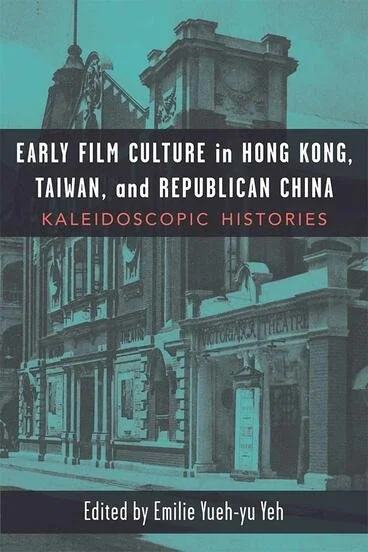
Emilie Yueh-yu Yeh
Early Film Culture in Hong Kong, Taiwan, and Republican China: Kaleidoscopic Histories
This volume features new work on cinema in early twentieth-century Hong Kong, Taiwan, and Republican China. Looking beyond relatively well-studied cities like Shanghai, these essays foreground cinema’s relationship with imperialism and colonialism and emphasize the rapid development of cinema as a sociocultural institution.
Sinophone studies and Mahua literature
-
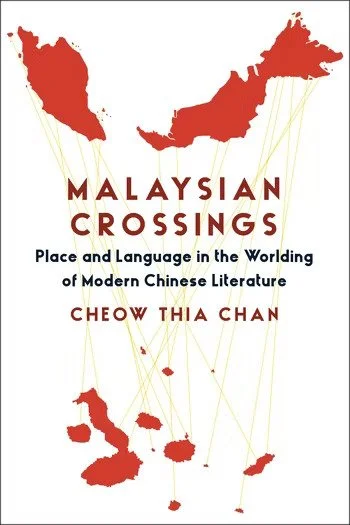
Cheow Thia Chan
Malaysian Crossings: Place and Language in the Worlding of Modern Chinese Literature
Highlighting Mahua literature’s distinctive mode of evolution, Cheow Thia Chan demonstrates that authors’ grasp of their marginality in the world-Chinese literary space has been the impetus for—rather than a barrier to—aesthetic inventiveness.
-

Brian C. Bernards
Writing the South Seas: Imagining the Nanyang in Chinese and Southeast Asian Postcolonial Literature
Writing the South Seas explains why Nanyang encounters, neglected by most literary histories, should be considered crucial to the national literatures of China and Southeast Asia.
-
E. K. Tan
Rethinking Chineseness: Transnational Sinophone Identities in the Nanyang Literary World
This book examines the relationship between the Nanyang Chinese, their original homelands (Borneo, Malaysia and Singapore) and their imaginary homeland (China) through the works of writers such as Kuo Pao Kun, Chang Kuei-hsing, and Vyvyane Loh.
-

Alison M. Groppe
Sinophone Malaysian Literature: Not Made in China
By analyzing the literary texts of several of the most influential contemporary Malaysia-born, Chinese-language authors, Groppe shows how the texts’ complex explorations of sentimental attachments, cultural contexts, and sources of power form the basis for a contested, fractured, unstable, and yet enduring Chinese Malaysian identity.
Sinophone studies and Hong Kong literature
-

Rey Chow
Not Like a Native Speaker: On Languaging as a Postcolonial Experience
Chow suggests, postcolonial languaging becomes, de facto, an order of biopolitics. The native speaker, the fulcrum figure often accorded a transcendent status, is realigned here as the repository of illusory linguistic origins and unities.
Sinophone studies and Taiwanese literature
-
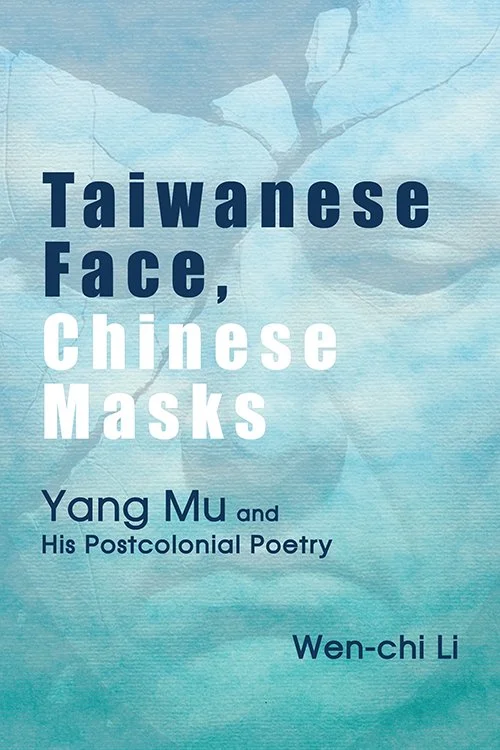
Wen-chi Li
Taiwanese Face, Chinese Masks: Yang Mu and His Postcolonial Poetry
This book reveals how Yang Mu, a leading Sinophone poet, resisted Kuomintang authoritarianism through poetic strategies that affirmed suppressed Taiwanese identity. -
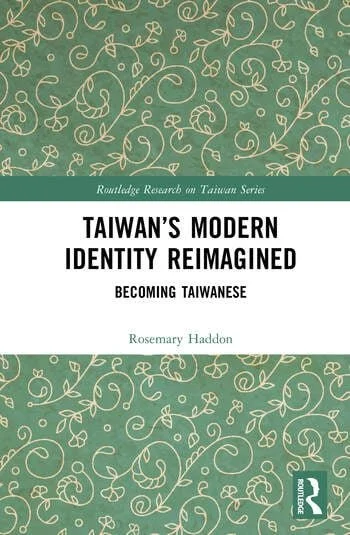
Rosemary Haddon
Taiwan’s Modern Identity: Reimagined Becoming Taiwanese
This book examines the formation of Taiwan’s modern identity during the course of the twentieth century and its intersection with the “new” Taiwanese identity. -

Ed. Michael Berry and Kuei-fen Chiu
The Wu Ming-yi Companion: Literature, Environment, and Translation through Compound Eyes
This volume situates Wu’s work within the broader contexts of world literature, Sinophone studies, and environmental humanities, exploring his engagement with indigenous narratives, transnational ecocriticism, and Taiwan’s complex colonial history.
-
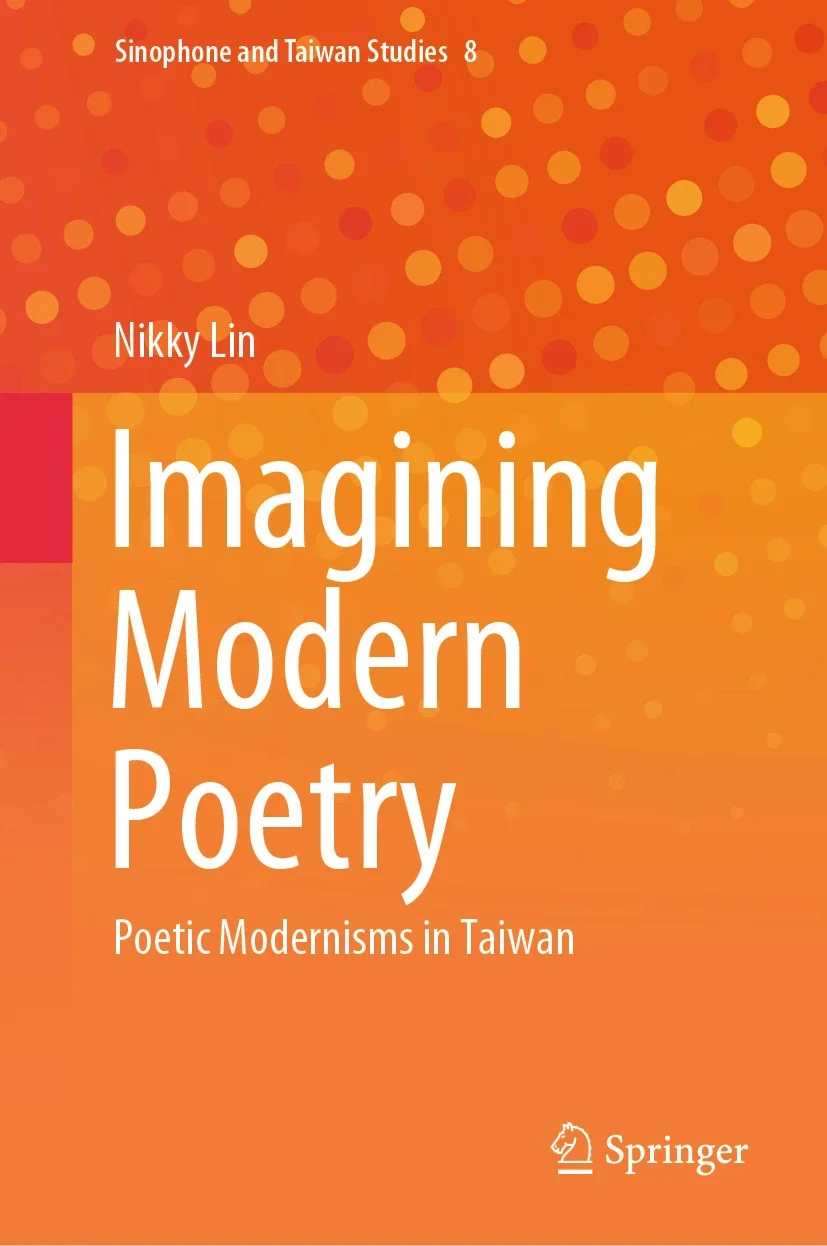
Nikky Lin
Imagining Modern Poetry: Poetic Modernisms in Taiwan
This book offers an in-depth discussion of the evolution of modernist poetry in Taiwan, with a focus on periods preceding and following World War II, and contextualizes the movement within the broader frameworks of Western, Japanese, and Chinese modernism. -
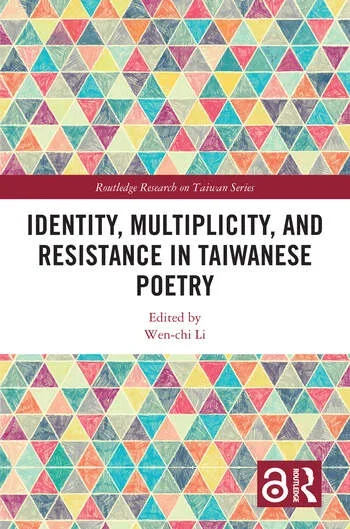
Ed. by Wen-chi Li
Identity, Multiplicity, and Resistance in Taiwanese Poetry
The book explores how Taiwanese poets conceptualize their identities, employing multiple voices to challenge political hegemony and re-evaluate Taiwan’s colonial legacy and nationalism.
-
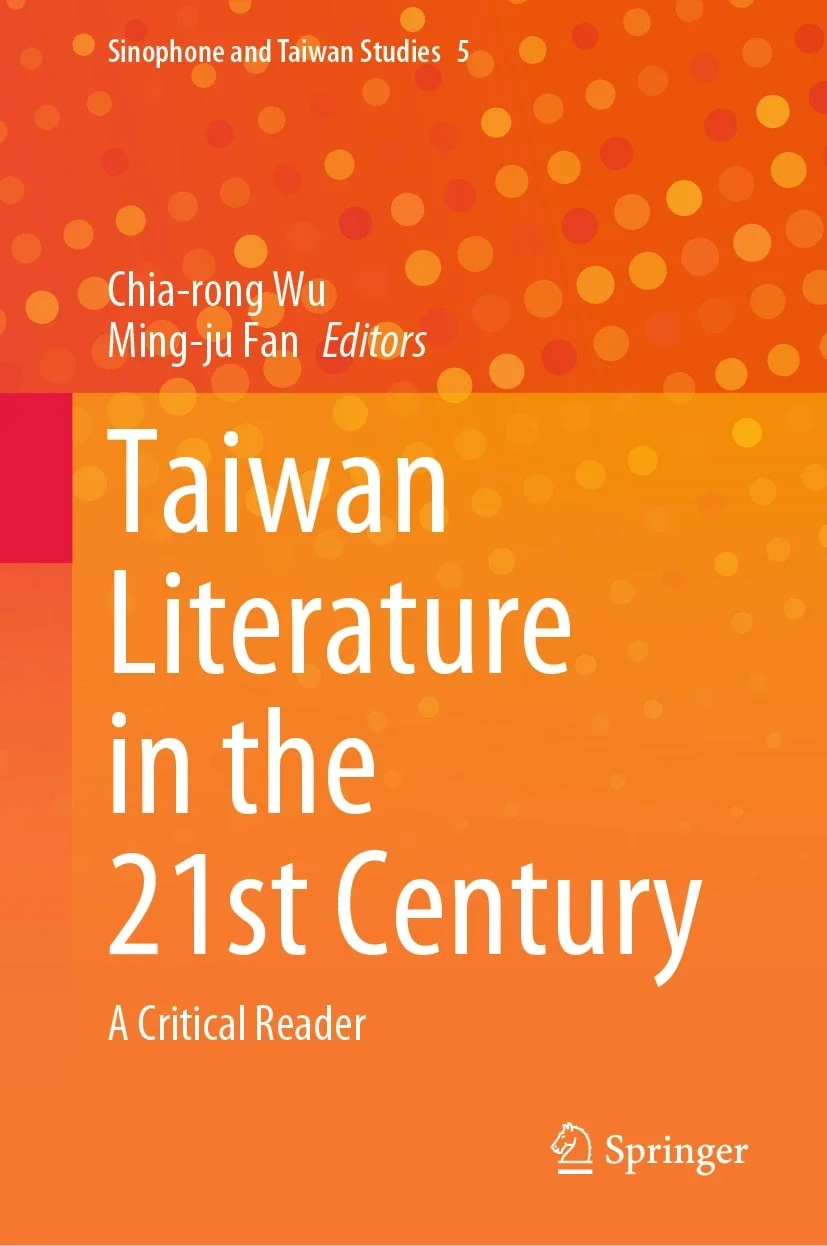
Ed. by Chia-rong Wu, Ming-ju Fan
Taiwan Literature in the 21st Century: A Critical Reader
This collection of original essays integrates and expands research on Taiwan literature because it includes both established and young writers. It not only engages with the evolving trends of literary Taiwan, but also promotes the translocal consciousness and cultural diversity of the island state and beyond.
-

Chia-rong Wu
Remapping the Contested Sinosphere: The Cross-cultural Landscape and Ethnoscape of Taiwan
This book speaks to the current framework of Sinophone studies by focusing on modern Taiwan and its entanglement with cultural China, Chinese diasporas, nativist trend, and Aboriginal consciousness.
-

Chia-rong Wu
Supernatural Sinophone Taiwan and Beyond
This first scholarly monograph focusing on the literary and cultural geography of Taiwan through a Sinophone lens is therefore a step toward filling the gap.
-
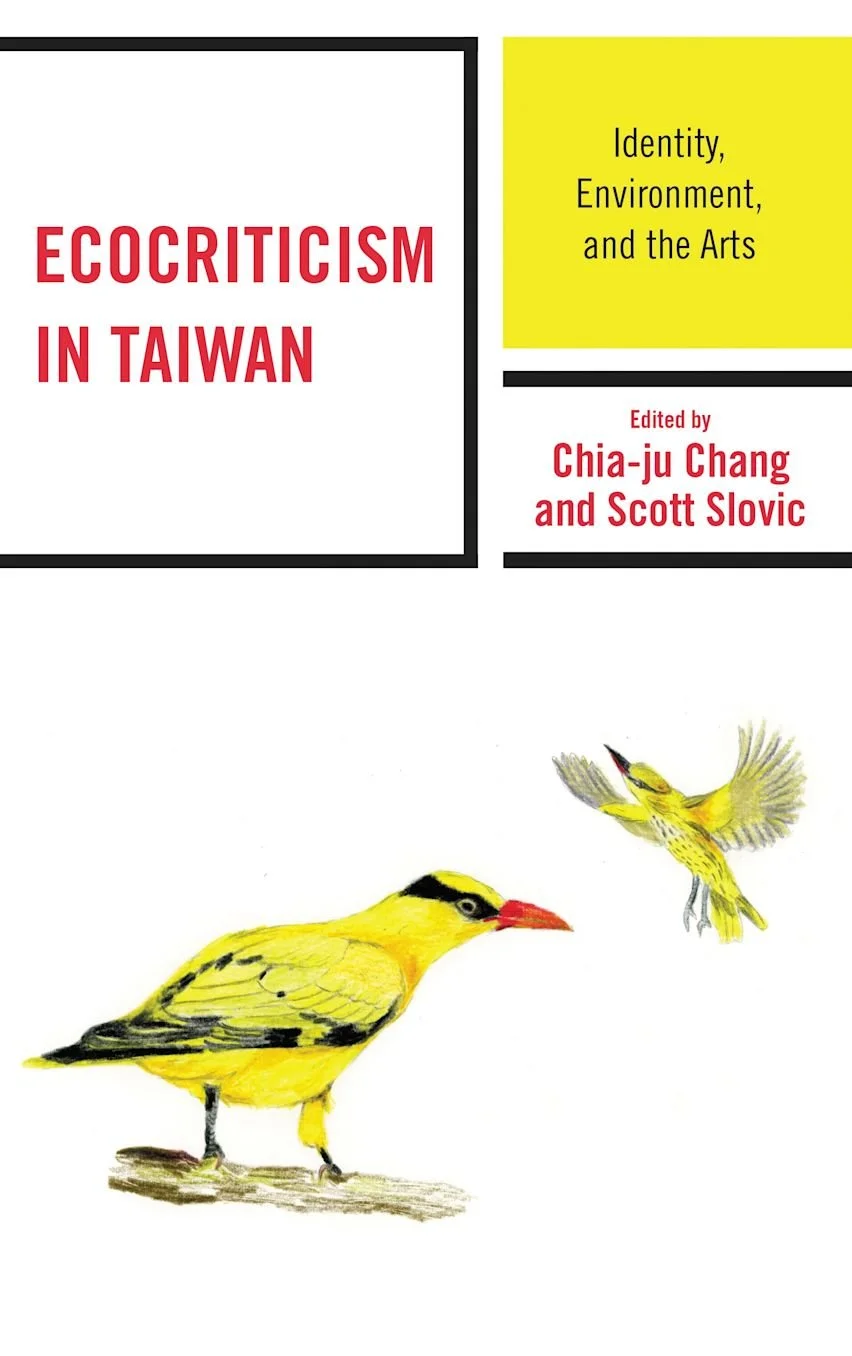
Ed. Chia-ju Chang and Scott Slovic
Ecocriticism in Taiwan: Identity, Environment, and the Arts
This volume can be seen as a critical response to Taiwan's postcolonial, capitalist-industrial modernity, as manifested in the scholars’ readings of Taiwan's "mountain and river," ocean, animal, and aboriginal (non)fictional narratives, environmental documentaries, and art installations. -

Margaret Hillenbrand
Literature, Modernity, and the Practice of Resistance
This book is a cross-cultural, interdisciplinary study which compares responses to modernity in the literary cultures of Japan and Taiwan, 1960-1990.
-
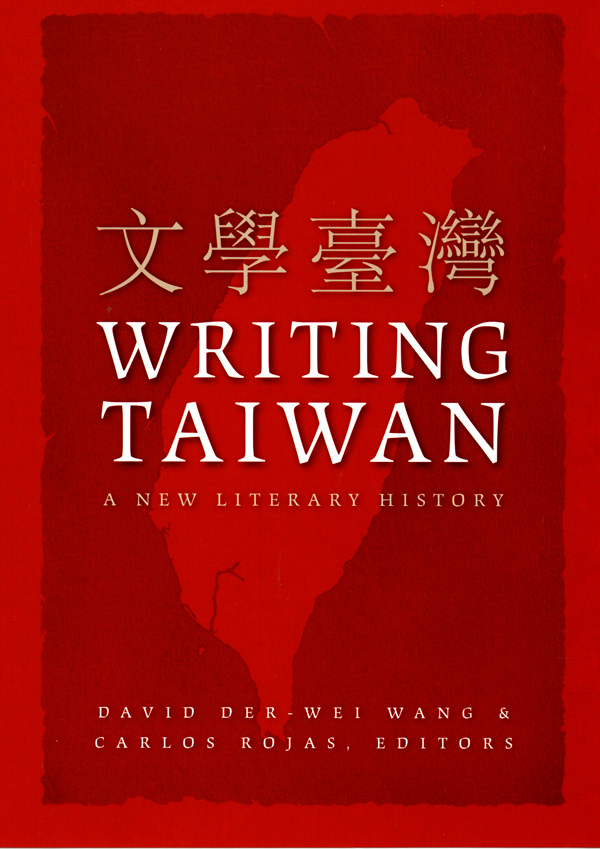
Ed. by David Der-wei Wang, Carlos Rojas
Writing Taiwan: A New Literary History
Writing Taiwan is the first volume in English to examine the entire span of modern Taiwan literature, from the first decades of the twentieth century to the present. In this collection, leading literary scholars based in Taiwan and the United States consider prominent Taiwanese authors and works in genres including poetry, travel writing, and realist, modernist, and postmodern fiction.
-

Tong King Lee
Experimental Chinese Literature: Translation, Technology, Poetics
Focusing on a range of works by contemporary Chinese authors including Hsia Yü, Chen Li, and Xu Bing, Tong King Lee explores how experimental writers engage their readers in multimodal reading experiences by turning translation into a method and by exploiting various technologies. -

Sung-sheng Yvonne Chang
Literary Culture in Taiwan: Martial Law to Market Law
This book argues that the concept of a field of cultural production is essential to accounting for the ways in which writers and editors respond to political and economic forces. It traces the formation of dominant concepts of literature, competing literary trends, and how these ideas have met political and market challenges.
Sinophone studies and Chinese literature
-
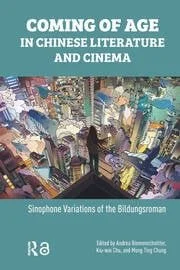
Ed. Andrea Riemenschnitter, Kiu-wai Chu, Mung Ting Chung
Coming of Age in Chinese Literature and Cinema: Sinophone Variations of the Bildungsroman
The book addresses themes such as family and social change; gender, class, and generational divides, local/global politics, and the ecological and posthuman turns in Chinese/Sinophone culture.
-

Zhiyi Yang
Poetry, History, Memory: Wang Jingwei and China in Dark Times
Yang brings disparate methodologies into a fruitful dialogue, including sophisticated methods of poetic interpretation. The author argues that Wang’s lyric poetry, as the public performance of a private voice, played a central role in constructing his political identity and heavily influenced the public’s posthumous memory of him.
-

Xian Wang
Gendered Memories: An Imaginary Museum for Ding Ling and Chinese Female Revolutionary Martyrs
Exploring Ding’s experiences with martyrdom and the commemoration of female revolutionary martyrs associated with her, the book provides a compelling argument that female revolutionary martyrdom reinforces, rather than rejects, the traditional concept of female chastity martyrdom. -
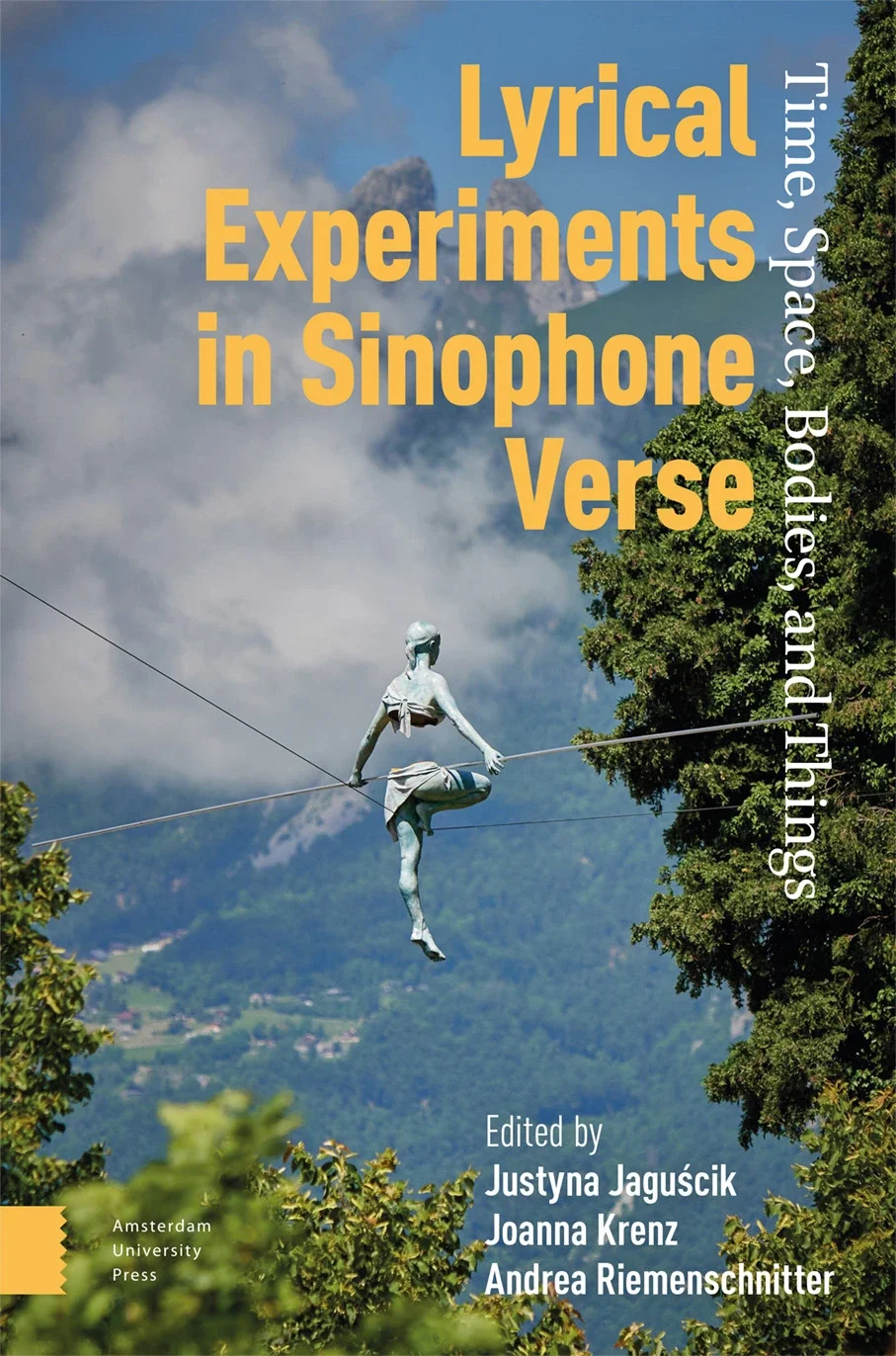
Ed. Justyna Jaguscik, Joanna Krenz, and Andrea Riemenschnitter
Lyrical Experiments in Sinophone Verse: Time, Space, Bodies, and Things
This volume identifies three foci in contemporary poetry discourses: formal crossovers, multiple realities, and liquid boundaries.
-
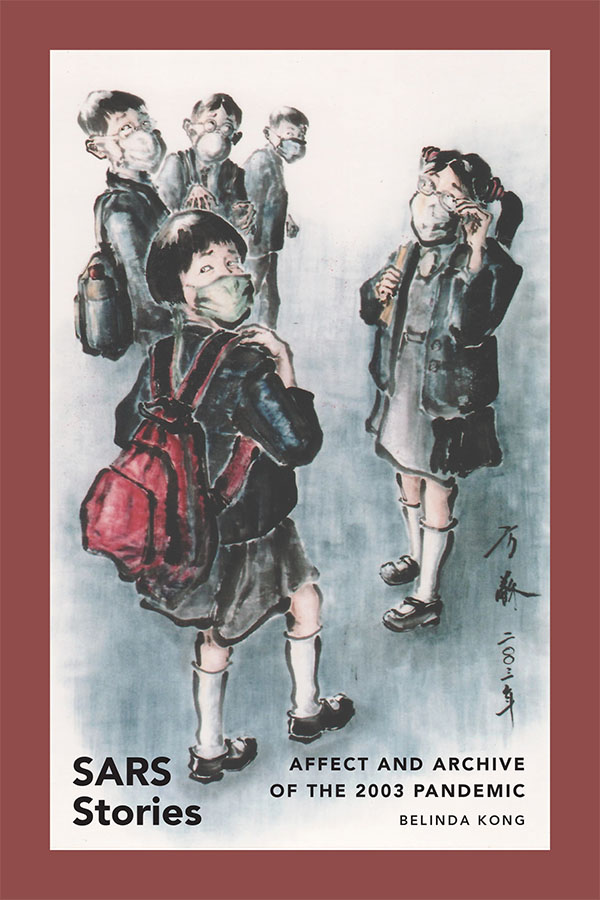
Belinda Kong
SARS Stories: Affect and Archive of the 2003 Pandemic
As the COVID-19 pandemic has highlighted issues of anti-Asian racism and sinophobia, Kong traces how Chinese people navigated the SARS pandemic and created meaning amid crisis through cultures of epidemic expression. -

Ed. by Andrea Riemenschnitter, Jessica Imbach, and Justyna Jaguscik
Sinophone Utopias: Exploring Futures Beyond the China Dream
This book highlights those reconceptualizations that reflect on flexible blueprints of future community life or, more openly, forms of togetherness, that are suitable for continuous (re)negotiation rather than supporting fixed, top-down enforced models. -
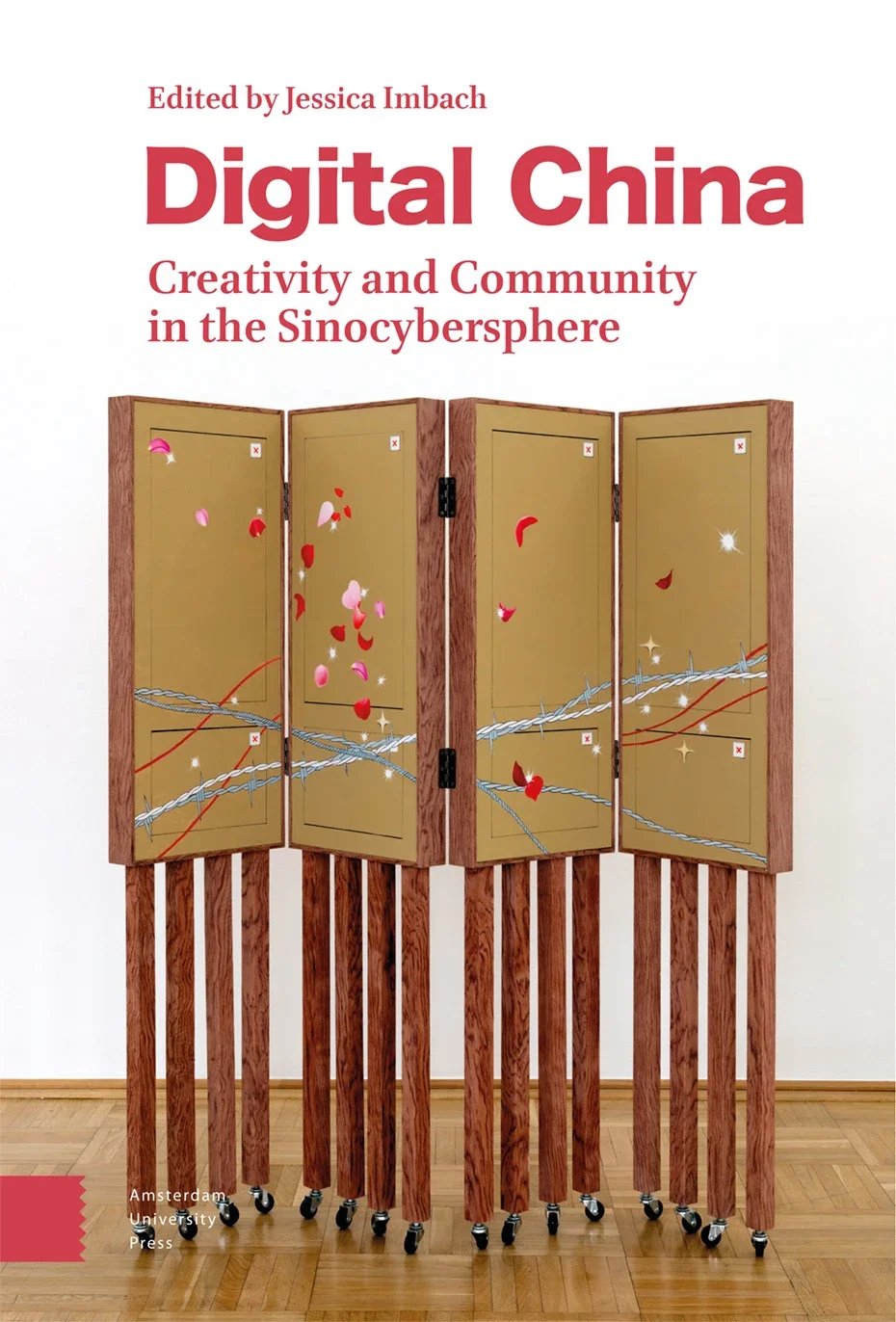
Ed. Jessica Imbach
Digital China: Creativity and Community in the Sinocybersphere.
This volume examines this development through the notion of the Sinocybersphere - the networked spaces across the globe that not only operate on the Chinese script, but also imaginatively negotiate the meanings of Chinese culture in the digital age.
-

Michel Hockx
Michel Hockx describes in detail the types of Chinese literature taking shape right now online and their novel aesthetic, political, and ideological challenges.
-
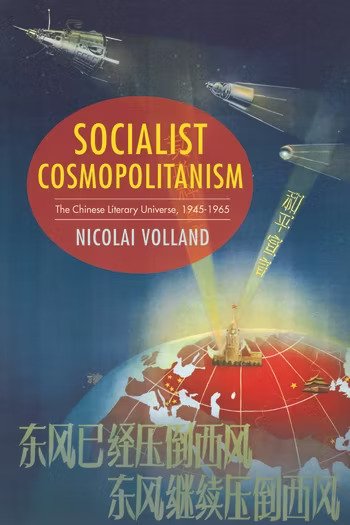
Nicolai Volland
Socialist Cosmopolitanism: The Chinese Literary Universe, 1945-1965
The book offers an innovative interpretation of literary works from the Mao era that reads Chinese socialist literature as world literature. -

Mingwei Song
Fear of Seeing: A Poetics of Chinese Science Fiction
Song argues that recent Chinese science fiction is united by a capacity to illuminate what had been invisible—what society had chosen not to see; what conventional literature had failed to represent.
-
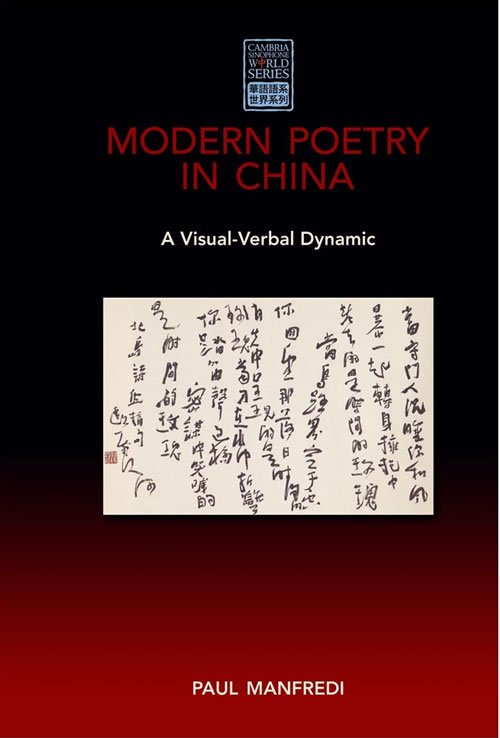
Paul Manfredi
Modern Poetry in China: A Visual-Verbal Dynamic
Chinese poetry, along with many other art forms in China, underwent a highly self-conscious transformation in the first decades of the twentieth century. -

Clara Iwasaki
Rethinking the Modern Chinese Canon: Refractions across the Transpacific
Iwasaki looks at four writers, Xiao Hong, Yu Dafu, Lao She, and Zhang Ailing, through what she calls refractive relations. Following transpacific circuits, these writers and texts move not simply from periphery to center, or from obscurity to canon, but back and forth between literary, linguistic, and national communities.
-
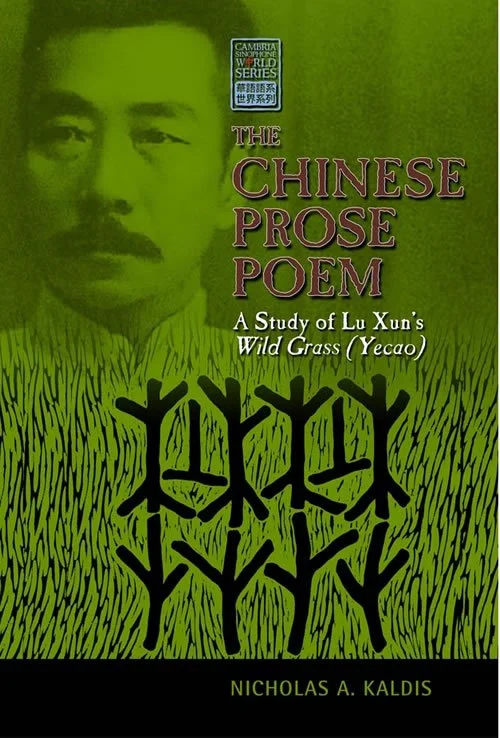
Nicholas A. Kaldis
The Chinese Prose Poem: A Study of Lu Xun's Wild Grass (Yecao)
This study remedies the absence of a comprehensive English-language study of Lu Xun’s Yecao and is the perfect companion to the reading and study of Yecao. -

Haiyan Lee
Revolution of the Heart: A Genealogy of Love in China, 1900-1950
This book is an engagingly written critical genealogy of the idea of "love" in modern Chinese literature, thought, and popular culture. It examines a wide range of texts, including literary, historical, philosophical, anthropological, and popular cultural genres from the late imperial period to the beginning of the socialist era.
-

David Der-wei Wang
Why Fiction Matters in Contemporary China
The book offers a corrective, revealing the crucial role that fiction plays in helping contemporary Chinese citizens understand themselves and their nation.
-

David Der-Wei Wang
The Monster That Is History: History, Violence, and Fictional Writing in Twentieth-Century China
Taking into account the campaigns of violence and brutality that have rocked generations of Chinese—often in the name of enlightenment, rationality, and utopian plenitude—this book places its arguments along two related axes: history and representation, modernity and monstrosity.
-

David Der-wei Wang
The Lyrical in Epic Time: Modern Chinese Intellectuals and Artists Through the 1949 Crisis
IWang calls attention to the form's vigor and variety at an unlikely juncture in Chinese history and the precarious consequences it brought about: betrayal, self-abjuration, suicide, and silence.
-
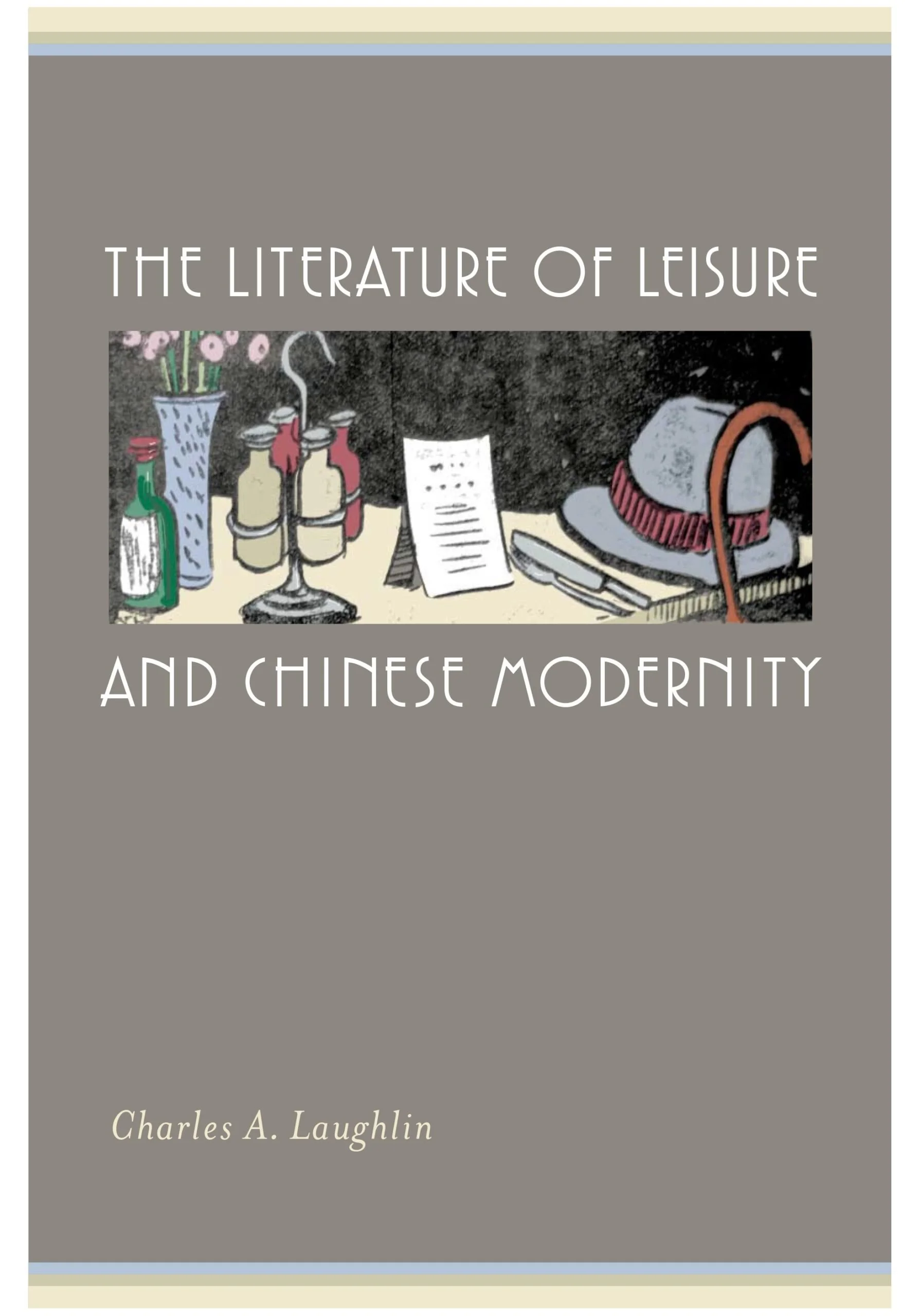
Charles A. Laughlin
The Literature of Leisure and Chinese Modernity
The Chinese essay is arguably China’s most distinctive contribution to modern world literature, and the period of its greatest influence and popularity—the mid-1930s—is the central concern of this book.
-
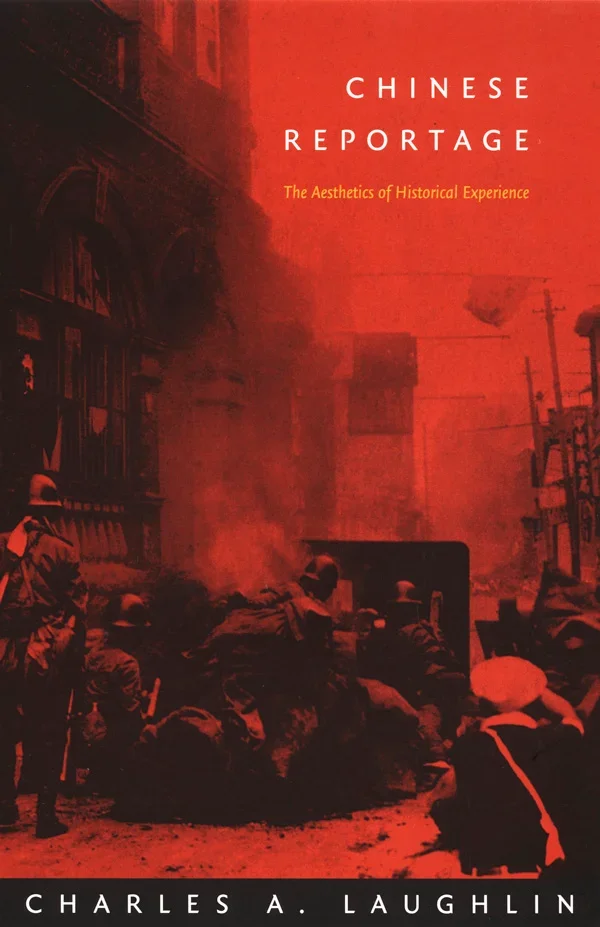
Charles A. Laughlin
Chinese Reportage: The Aesthetics of Historical Experience
The book details for the first time in English the creation and evolution of a distinctive literary genre in twentieth-century China. -
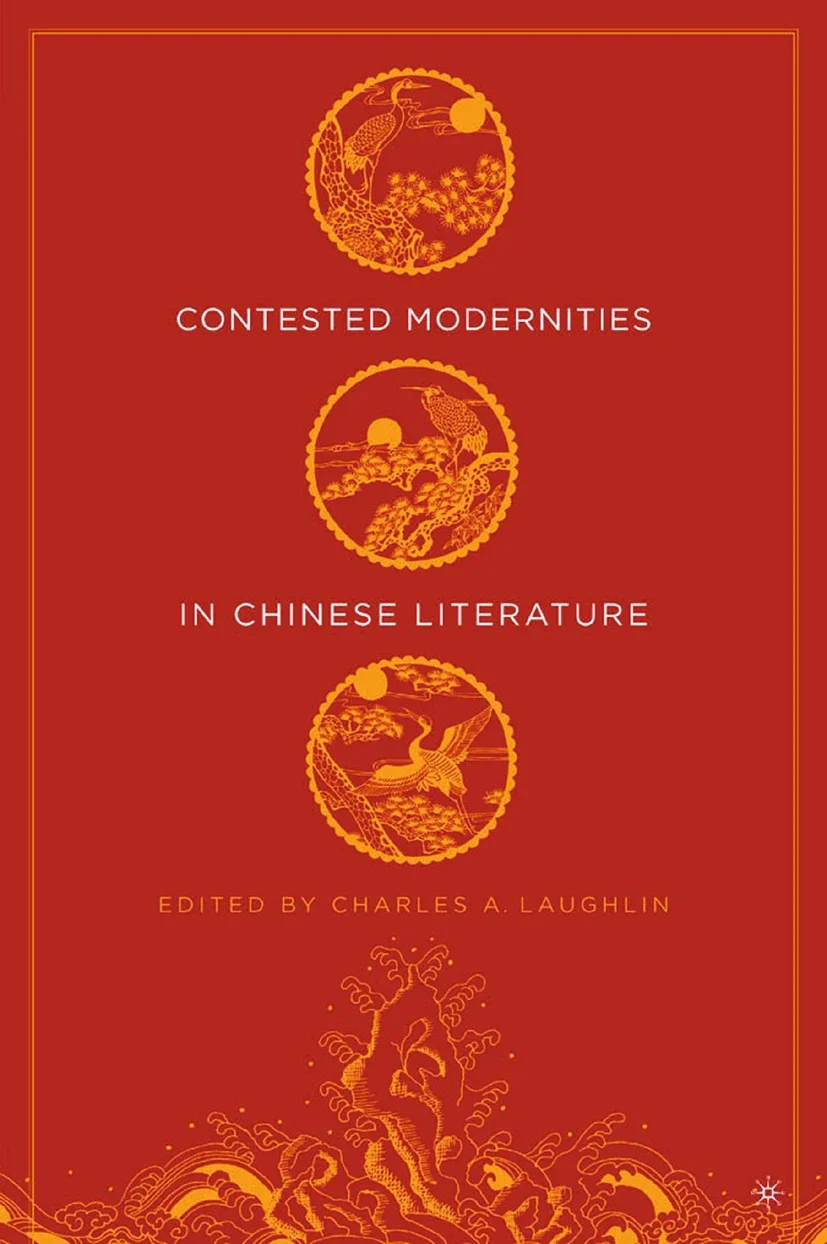
Charles A. Laughlin
Contested Modernities in Chinese Literature
The essays represent a wide spectrum of new approaches and new areas of subject matter that are changing the landscape of knowledge of modern and contemporary Chinese culture: women's literature, theatre (performance), film, graphic arts, popular literature, as well as literature of the Chinese diaspora.
Sinophone studies and Thai studies
-

Rebecca Ehrenwirth
Zeitgenossische Sinophone Literatur in Thailand (Contemporary Sinophone Literature in Thailand)
Rebecca Ehrenwirth prasentiert in ihrem Band zwei zeitgenossische Autoren der dritten Welle der sinophonen Literatur in Thailand.
Sinophone studies and translation studies
-

Ed. Simona Gallo and Martina Codeluppi
Mother Tongues and Other Tongues: Creating and Translating Sinophone Poetry
This book analyzes contemporary translingual Sinophone poetry and discusses its creative processes and translational implications, along with their intersections. -

Jessica Tsui-yan Li
Eileen Chang: The Performativity of Self-Translation
Jessica Li argues that although self-translation is overlooked in most studies of her work, Eileen Chang’s literary achievements are attributed in part to her lifelong self-translation of her lived experiences and family sagas, as well as her bilingualism.
-

Ed. by Cosima Bruno, Lucas Klein, Chris Song
The Bloomsbury Handbook of Modern Chinese Literature in Translation
The book provides new tools for reading and appreciating modern and contemporary Chinese literature within the global context of its translation, offering in-depth studies of eminent Chinese authors and their literary masterpieces in translation.
-
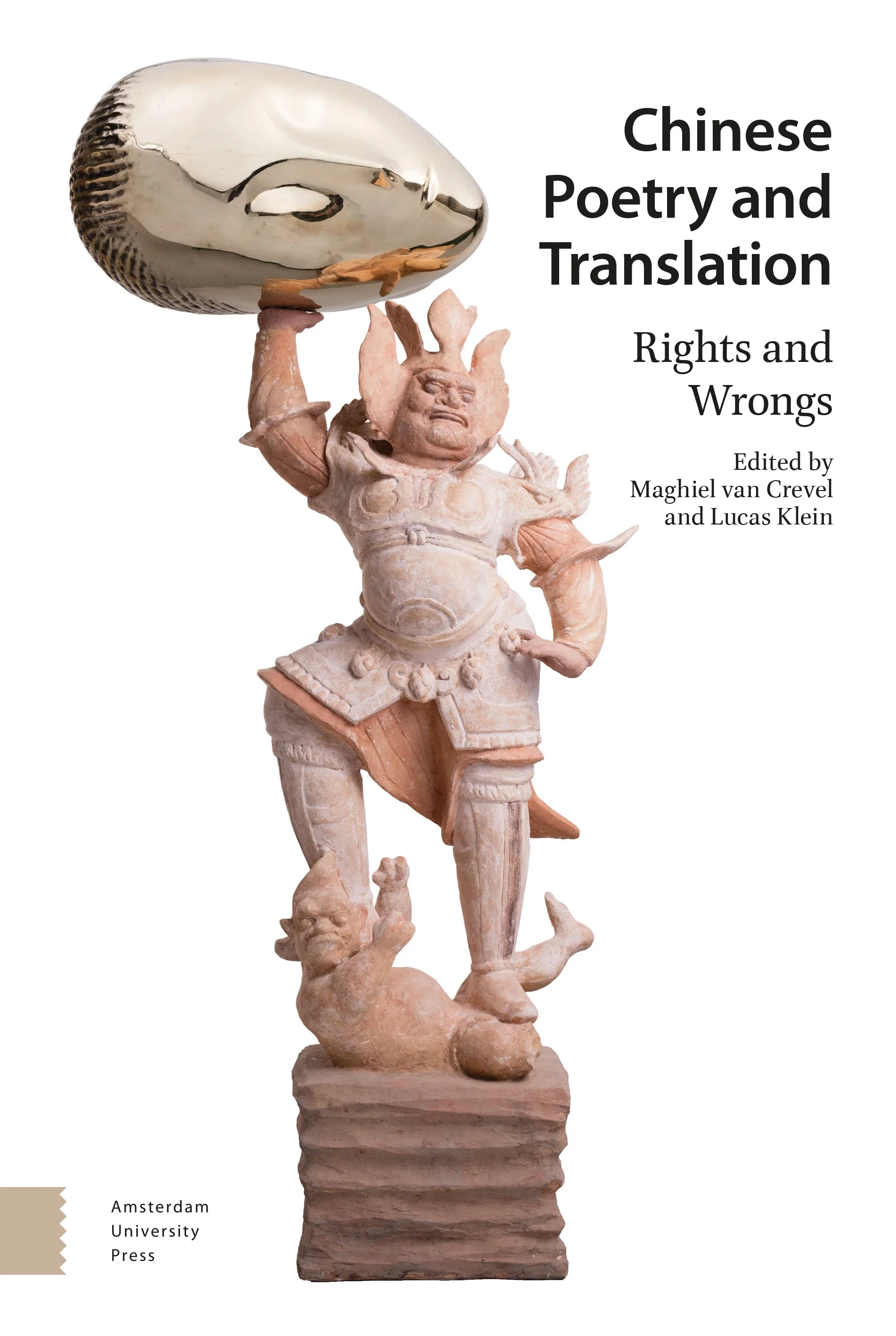
Ed. Maghiel van Crevel, and Lucas Klein
Chinese Poetry and Translation: Rights and Wrongs
Pushing past oppositions that still too often restrict discussions of translation-form versus content, elegance versus accuracy, and "the original" versus "the translated" - this volume brings a wealth of new thinking to the interrelationships between poetry, translation, and China. -

Lucas Klein
The Organization of Distance: Poetry, Translation, Chineseness
The book applies the notions of foreignization and nativization to Chinese poetry to argue that the impression of poetic Chineseness has long been a product of translation, from forces both abroad and in the past.
-

Cosima Bruno
Between the Lines: Yang Lian's Poetry through Translation
Cosima Bruno illustrates how the study of translation can enhance our experience of reading poetry.
Sinophone studies and borderlands
-

Yanshuo Zhang
Creative Belonging: The Qiang and Multiethnic Imagination in Modern China
Drawing on a diverse range of official and local political discourses and previously unstudied literary, historiographical, and cinematic works, Yanshuo Zhang illuminates how the Qiang have carved out spaces of “creative belonging” within the parameters of multiculturalism in contemporary China.
-

Robin Visser
Questioning Borders: Ecoliteratures of China and Taiwan
Robin Visser compares literary works by Bai, Bunun, Kazakh, Mongol, Tao, Tibetan, Uyghur, Wa, Yi, and Han Chinese writers set in Xinjiang, Tibet, Inner Mongolia, Southwest China, and Taiwan, sites of extensive development, migration, and climate change impacts.
-
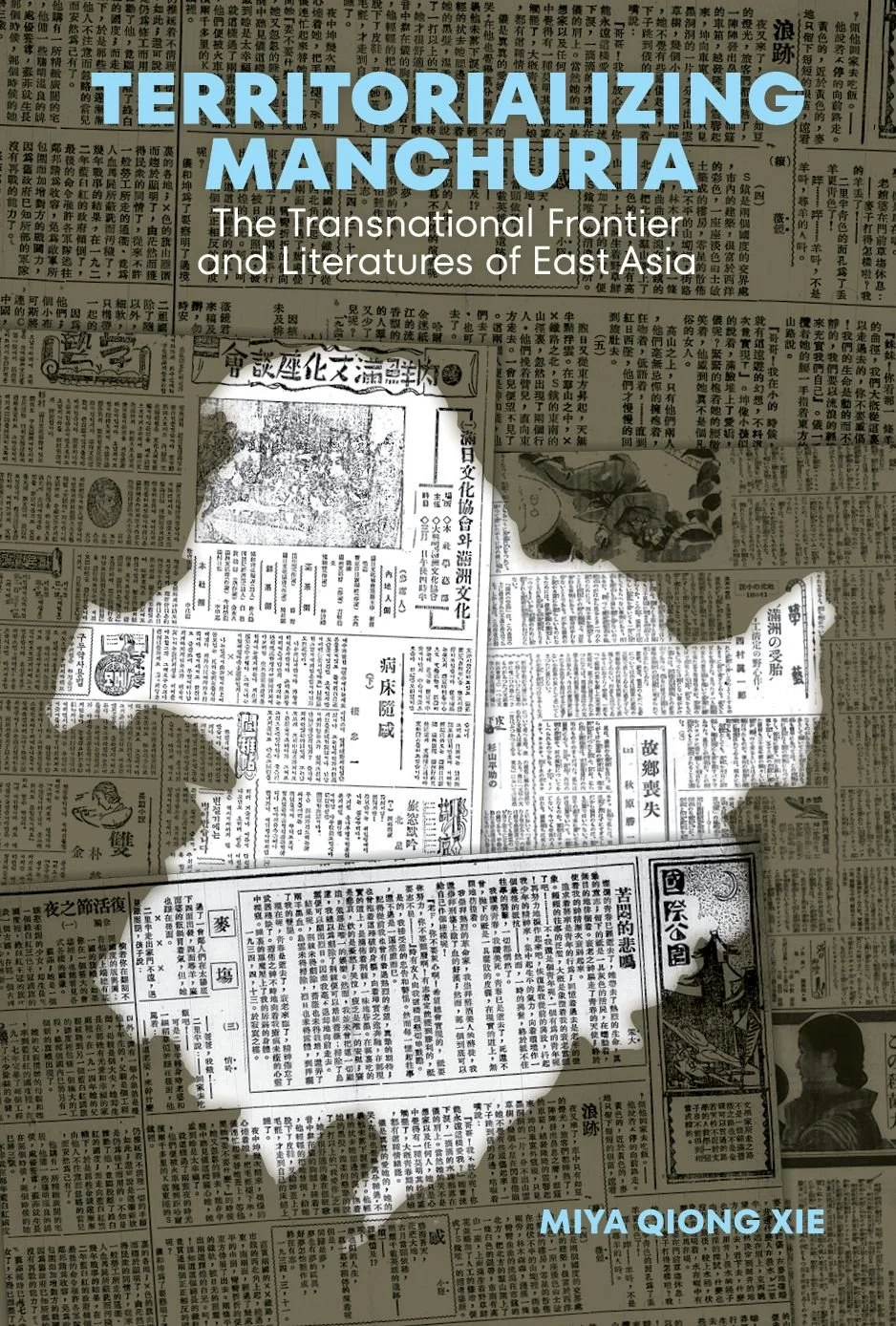
Miya Qiong Xie
Territorializing Manchuria: The Transnational Frontier and Literatures of East Asia
Through the theoretical lens of literary territorialization, Miya Xie reconceptualizes modern Manchuria as a critical site for making and unmaking national literatures in East Asia. -
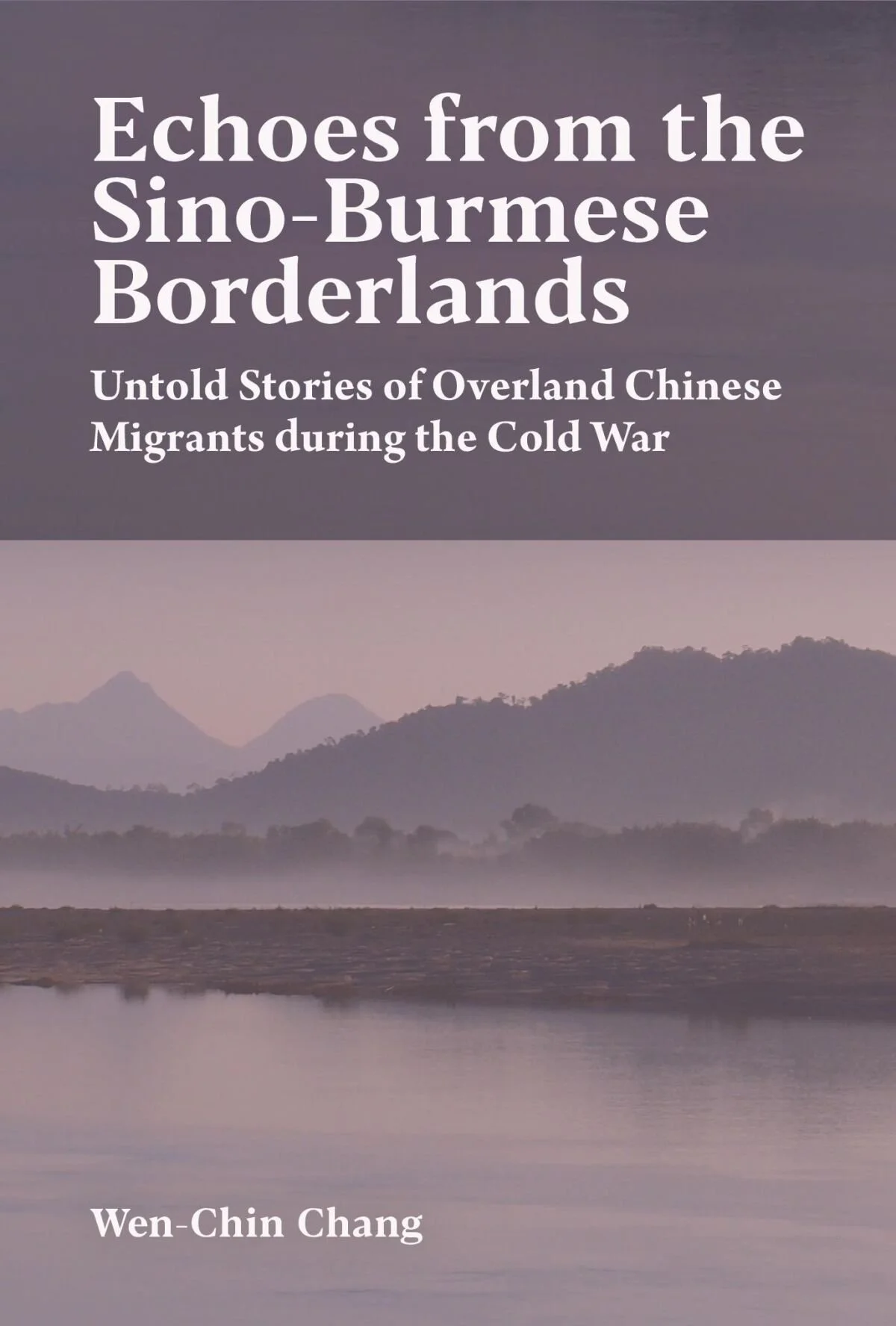
Wen-Chin Chang
Echoes from the Sino-Burmese Borderlands: Untold Stories of Overland Chinese Migrants During the Cold War
Chang probes their political, economic, and sociocultural trajectories, including their engagement in Taiwan’s espionage in Burma, military operations of the Communist Party of Burma, mule transport for the Burmese authorities, underground cross-border trade, and pursuit of a Chinese education.
Sinophone studies and sensory studies
-

Astrid Møller-Olsen
Sensing the Sinophone: Urban Memoryscapes in Contemporary Fiction
It explores the connection between elusive memories and material cityscapes through the matrix of the senses.
Sinophone studies and visual arts
-
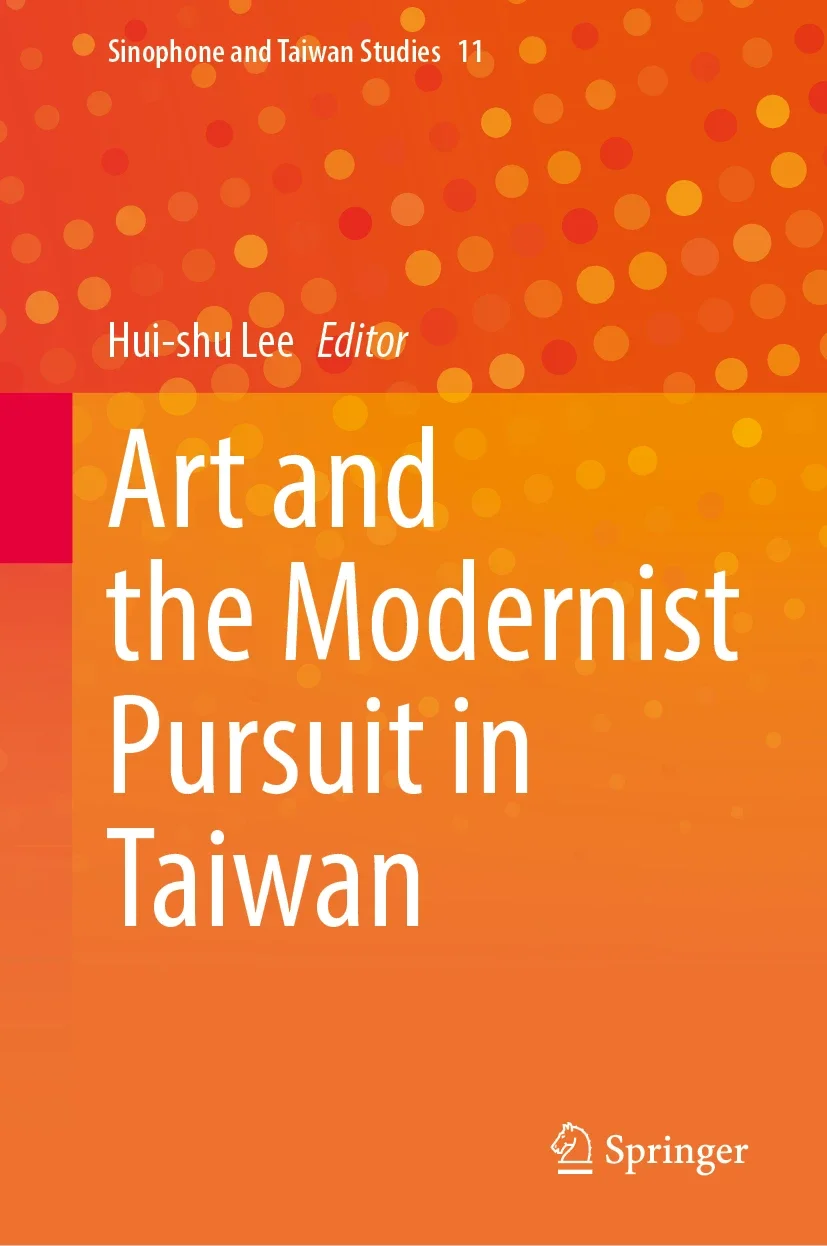
Hui-shu Lee
Art and the Modernist Pursuit in Taiwan
This is the most up-to-date collection of essays in English on the trajectory of Taiwan and its modernist art movement currently available. -
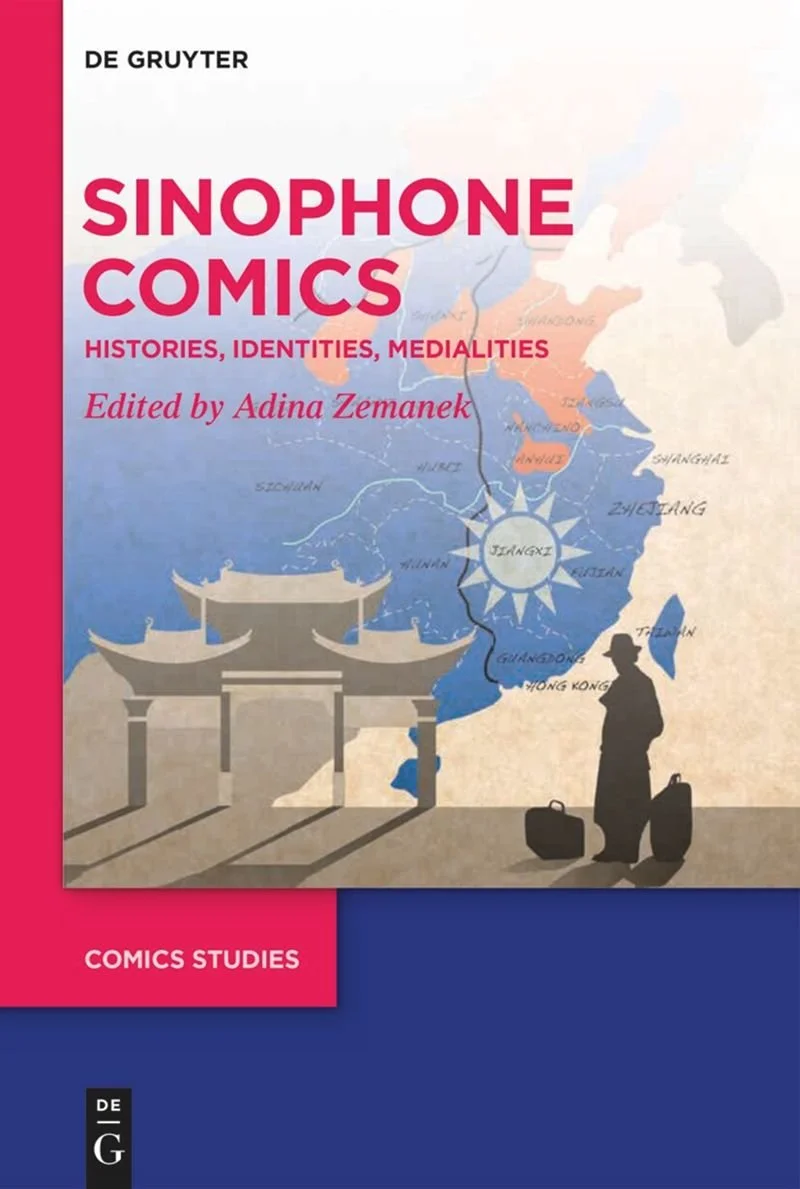
Ed. Adina Zemanek
Sinophone Comics: Histories, Identities, Medialities
Chapter contributors explore key themes in Sinophone studies: identity construction and history writing through positive or negative connections with China as a cultural and political center, contingent on local colonial legacies, nationalist projects, and other cultural factors.
-

Margaret Hillenbrand
On the Edge: Feeling Precarious in China
The Book probes precarity in contemporary China through the lens of the dark and angry cultural forms that chronic uncertainty has generated.
-
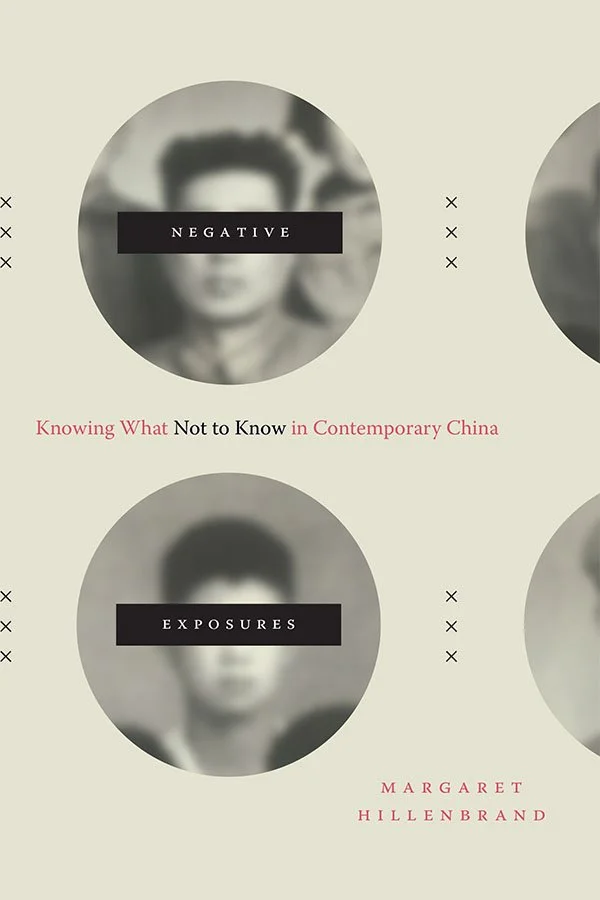
Margaret Hillenbrand
Negative Exposures: Knowing What Not to Know in Contemporary China
Hillenbrand investigates the erasure of key aspects of such momentous events as the Nanjing Massacre, the Cultural Revolution, and the Tiananmen Square protests from the Chinese historical consciousness, not due to amnesia or censorship but through the operations of public secrecy.
Sinophone studies and media studies
-
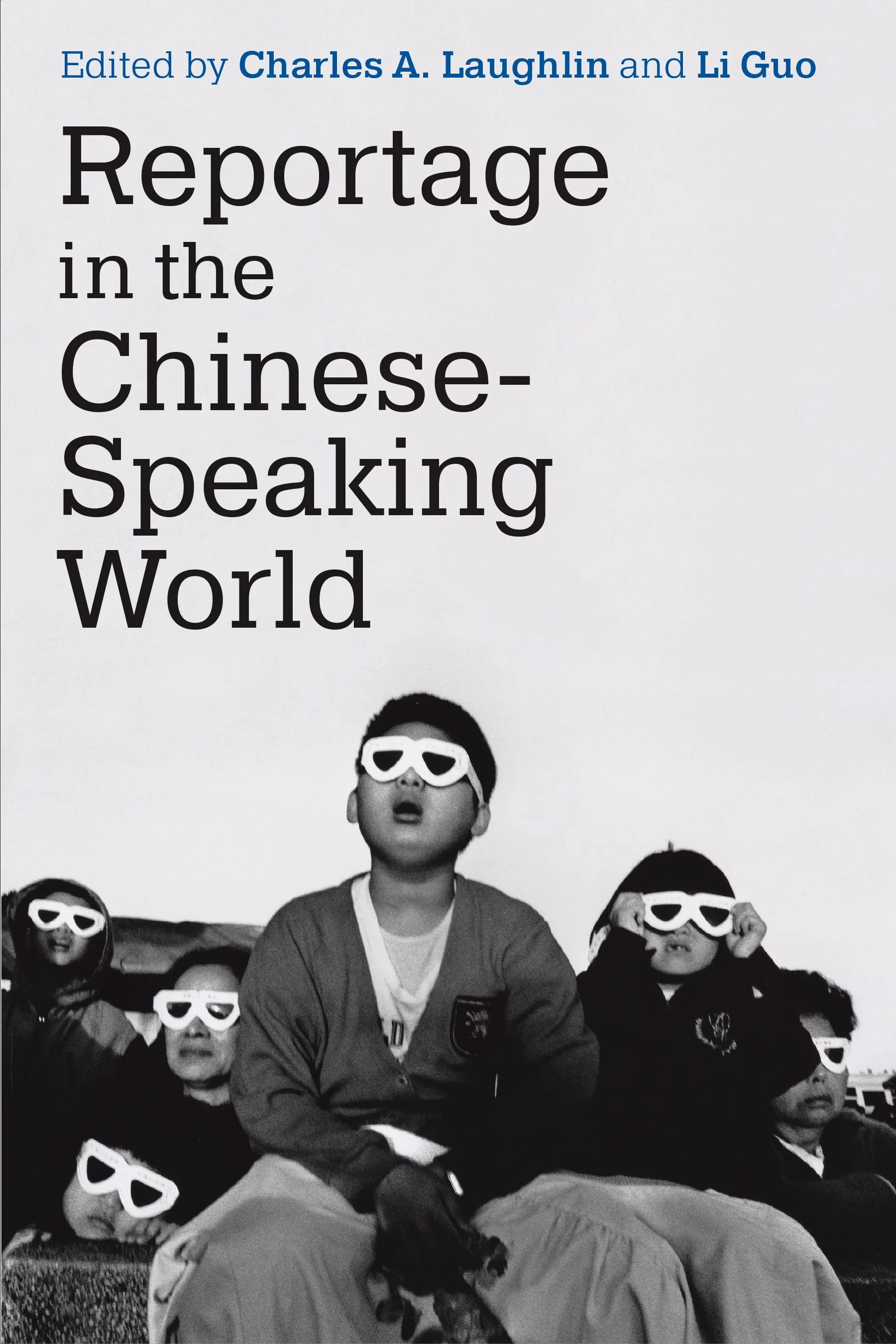
Ed. Charles A. Laughlin & Li Guo
Reportage in the Chinese-Speaking World
This work offers new understandings of reportage’s dialectical relationship with its readership by evoking sympathetic identifications with personal contemplations of place, hearth, and senses of belonging.
-

Erin Y. Huang
Urban Horror: Neoliberal Post-Socialism and the Limits of Visibility
Huang traces the emergence and mediation of what she calls urban horror—a sociopolitical public affect that exceeds comprehension and provides the grounds for possible future revolutionary dissent.
-

Geng Song
Televising Chineseness: Gender, Nation, and Subjectivity
The book explores how television and online dramas imagine the Chinese nation and form postsocialist Chinese gendered subjects.
-
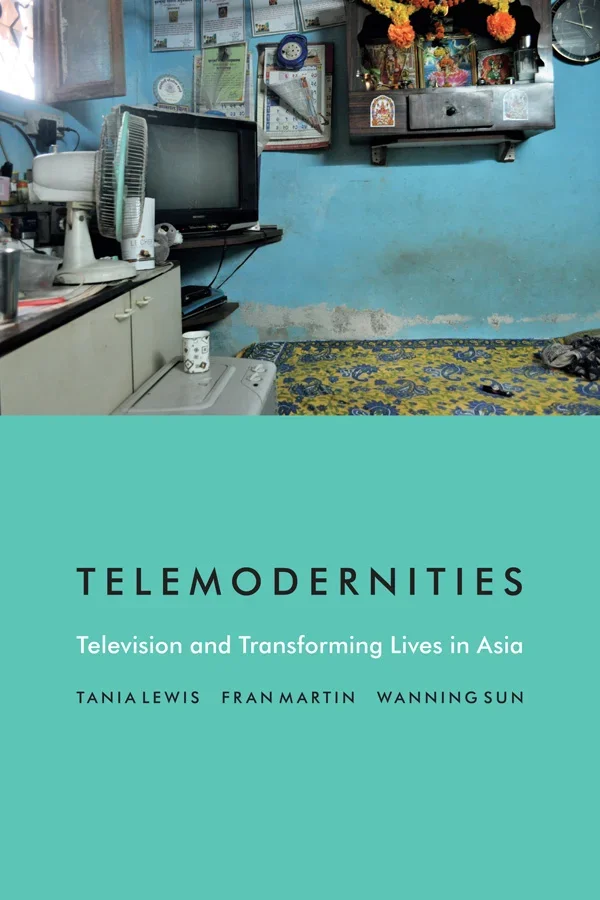
Tania Lewis, Fran Martin, Wanning Sun
Telemodernities: Television and Transforming Lives in Asia
Drawing on extensive interviews with television industry professionals and audiences across China, India, Taiwan, and Singapore, the book uses popular lifestyle television as a tool to help us understand emergent forms of identity, sociality, and capitalist modernity in Asia.
Sinophone studies and performing arts
-
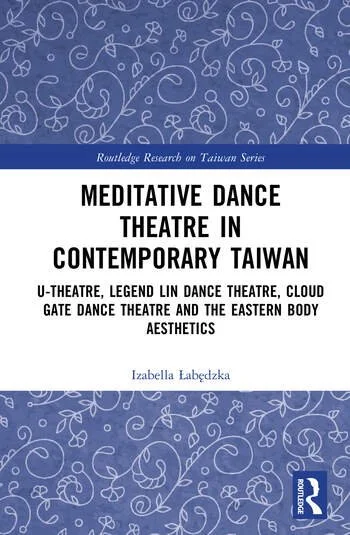
Izabella Łabędzka
Meditative Dance Theatre in Contemporary TaiwanU-Theatre, Legend Lin Dance Theatre, Cloud Gate Dance Theatre, and the Eastern Body Aesthetics
The book reveals how native traditions have inspired the formation of these contemporary dances. -

Tarryn Li-Min Chun
Revolutionary Stagecraft: Theater, Technology, and Politics in Modern China
This book reveals the complex and at times surprising ways in which Chinese theater artists and technicians of the 20th century envisioned and enacted their own revolutions through the materiality of the theater apparatus.
-
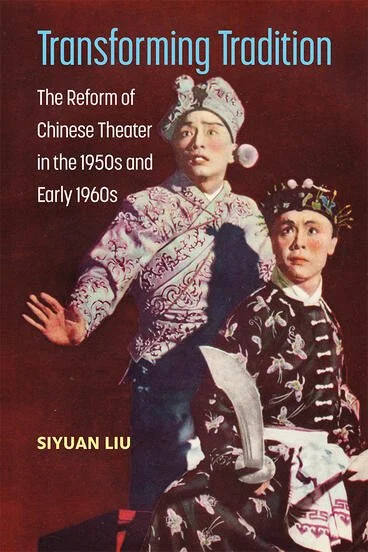
Siyuan Liu
Transforming Tradition: The Reform of Chinese Theater in the 1950s and Early 1960s
This book offers a systematic study of the effects of the comprehensive reform of traditional theater conducted in the 1950s and ’60s, and is based on a decade’s worth of exhaustive research of official archival documents, wide-ranging interviews, and contemporaneous publications, most of which have never previously been referenced in scholarly research.
-

Edited by Xiaomei Chen, Tarryn Li-Min Chun, and Siyuan Liu
Rethinking Chinese Socialist Theaters of Reform: Performance Practice and Debate in the Mao Era
This book explores the unique dynamics between official discourse, local politics, performance practice, and audience reception that emerged under the pressures of highly politicized cultural reform as well as the off-stage, lived impact of rapid policy change on individuals and troupes obscured by the public record.
-

Man He
Backstaging Modern Chinese Theatre: Intellectuals, Amateurs, and Cultural Entrepreneurs, 1910s–1940s
Man He demonstrates how the formation of modern Chinese theatre challenges dominant understandings of modernism and brings China to the center of discussions on transnational modernities and world theatres. -
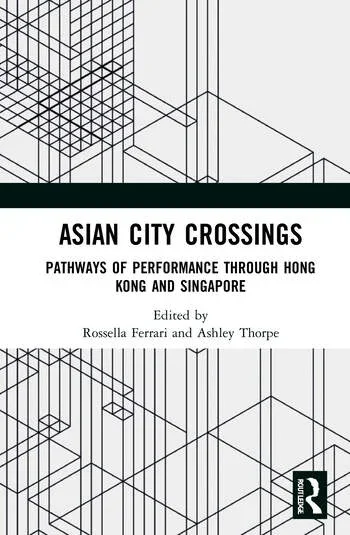
Ed. by Rossella Ferrari, Ashley Thorpe
Asian City Crossings: Pathways of Performance through Hong Kong and Singapore
This collection introduces "city as method" as a new conceptual framework for the investigation of practices of city-based performing arts collaboration and city-to-city performance networks across East- and Southeast Asia and beyond. -
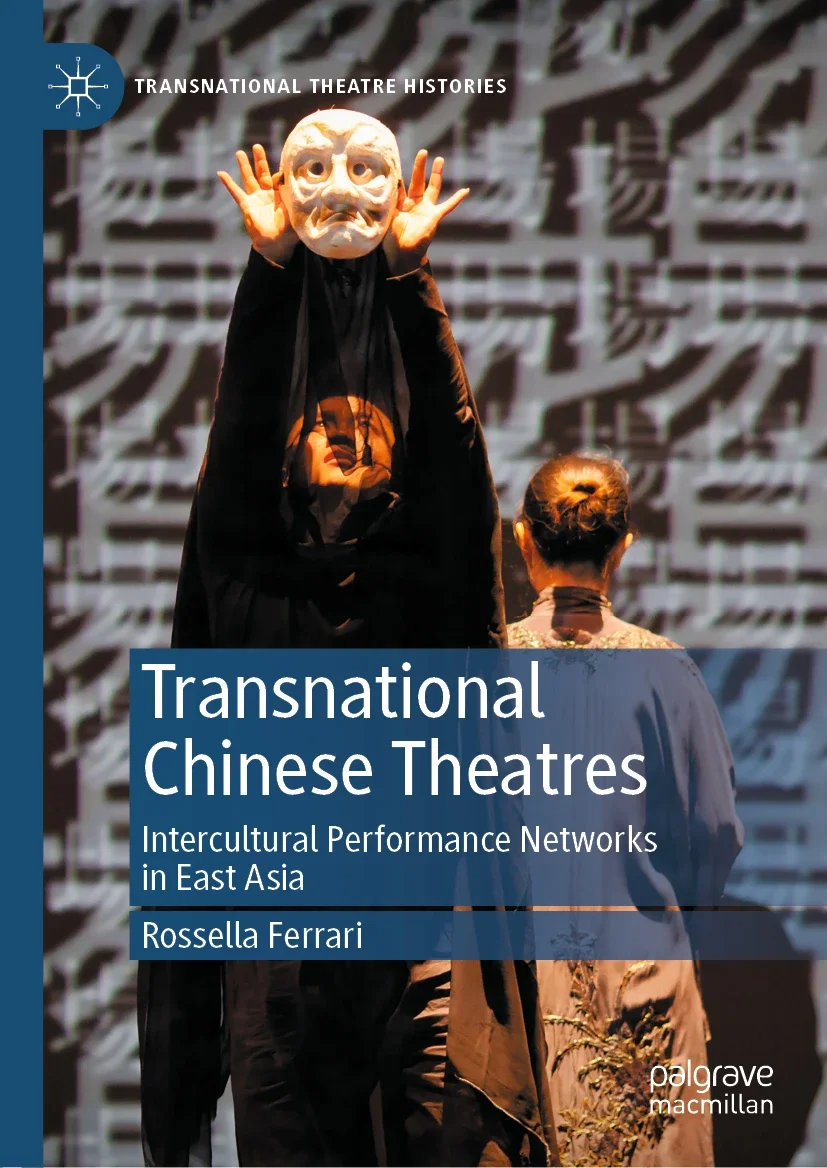
Rossella Ferrari
Transnational Chinese Theatres: Intercultural Performance Networks in East Asia
The book investigates the aesthetics and politics of collaboration to propose a new transnational model for the analysis of Sinophone theatre cultures and to foreground the mobility and relationality of intercultural performance in East Asia. -
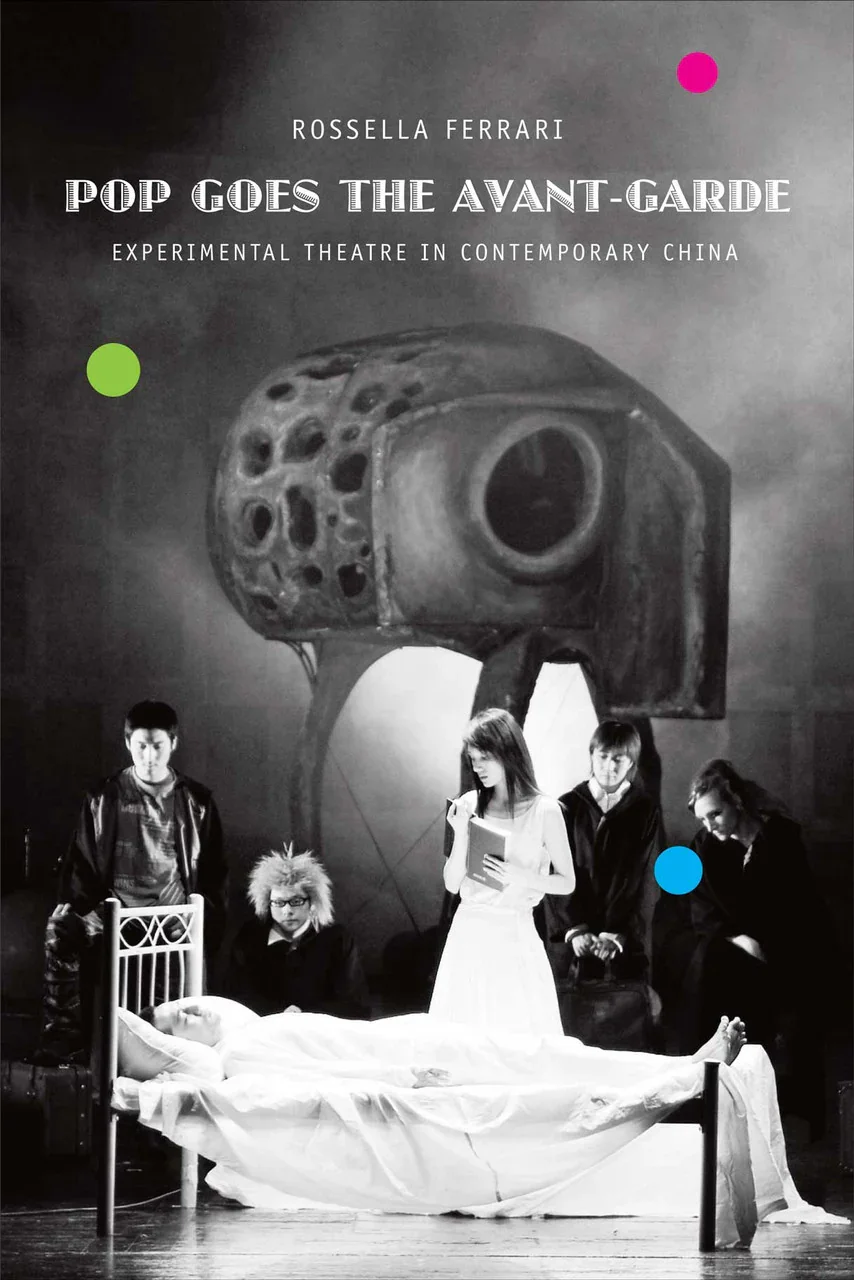
Rossella Ferrari
Pop Goes the Avant-Garde: Experimental Theatre in Contemporary China
Through an extensive critique of theories of modernism and the avant-garde, the author reassesses the meanings, functions and socio-historical significance of this work in non-Western contexts by proposing a new theoretical construct—the pop avant-garde—and exploring new ways to understand and conceptualize aesthetic practices beyond Euro-American cultures and critical discourses. -

Daphne Lei
Uncrossing the Borders: Performing Chinese in Gendered (Trans)Nationalism
The book analyzes how national, cultural, and ethnic borders are inevitably gendered and incite violence against women in the name of the nation.
